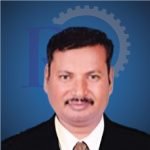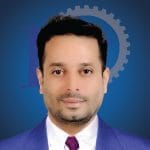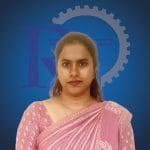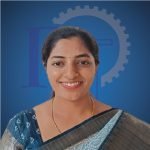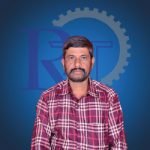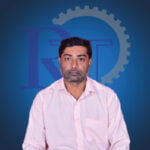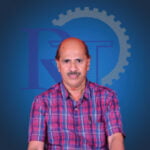
Department of Electrical and Electronics Engineering
- ABOUT
- INFRASTRUCTURE
- STUDENT LEARNING CENTRIC
- FACULTY PROFILES
- ACHIEVEMENTS
- RESEARCH INITIATIVES
- INDUSTRY INTERFACE
- INDUSTRIAL VISIT
- PLACEMENTS
- CO-CURRICULAR & EXTRA CURRICULAR ACTIVITIES
- COE-EEE
- MENTORING MODULE
About the Department
The Department of Electrical & Electronics Engineering was started in the academic year 2008-2009. The Department offers an undergraduate program in the field of Electrical & Electronics Engineering for which the student intake is currently 60. The Department of Electrical & Electronics Engineering is approved by the All-India Council for Technical Education (AICTE), and is affiliated to Visvesvaraya Technological University (VTU), Belagavi, Karnataka. The department has well-qualified, passionate, dedicated faculty and has a well-connected alumni network. The department prepares professionals with the capacity to apply their knowledge, skills, attitudes, and the most recent technological developments to the solution of problems in our society.
The moto of Electrical and Electronics department is to be a catalyst in imparting quality education and conducting valued research for the benefit of society. Historically, the field of electrical engineering is one of the most important engineering disciplines that have changed the course of the world.
The department strives to prepare its students to be independent and innovative. The environment of the department is conducive to academic growth of its faculty and students. The objective of department is to equip students with techniques to become providers of innovative and indigenous solutions. The department offers a vibrant environment for education and research in electrical engineering. The students are selected for jobs in the industry through campus as well as off campus placements. They are also encouraged to pursue higher studies in India as well as abroad. The students and faculty of the department receive support and encouragement from its alumni and guidance from experts from premier institutions and industry.
H.O.D.’s Message
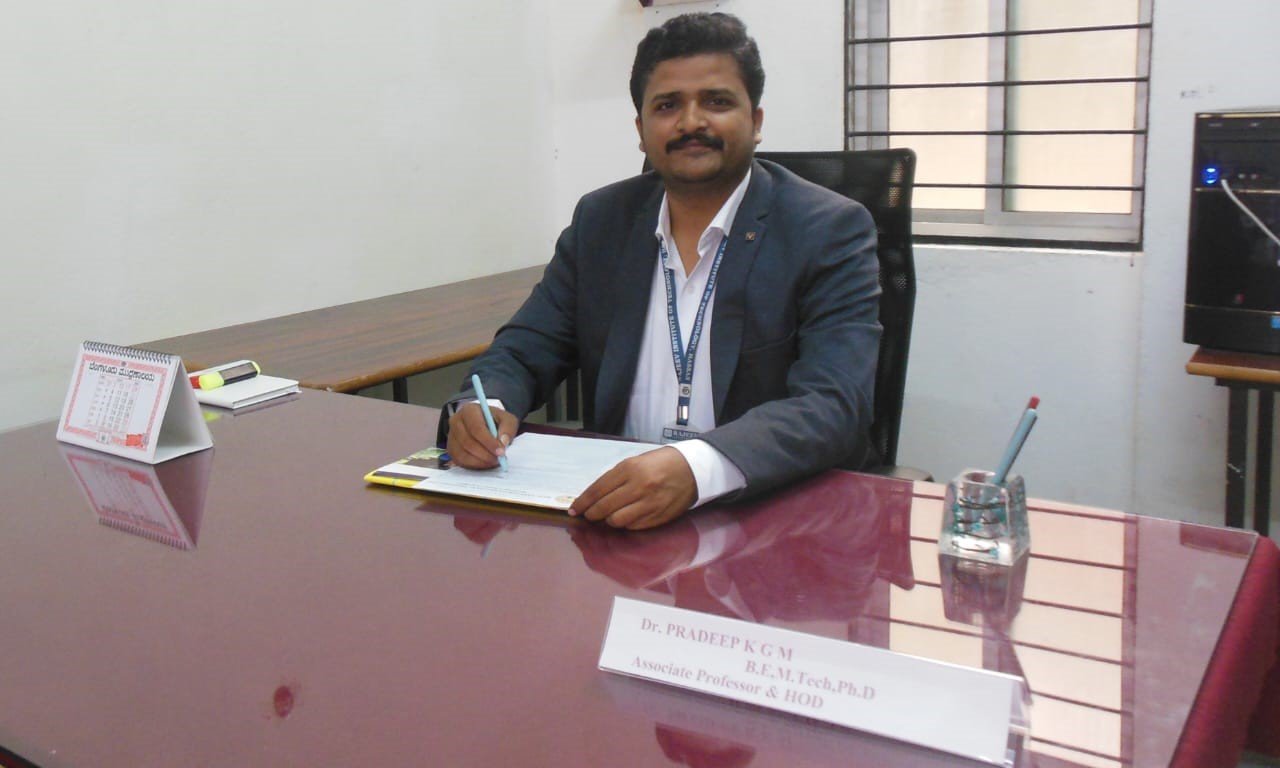
Dr. PRADEEP K G M
Head of the Department
“Welcome to the Electrical and Electronics Engineering (EEE) department. It gives me immense pride and pleasure to lead the Electrical and Electronics Engineering Department of this esteemed & prestigious institution.
Electrical Engineering is the mother of all electrical sciences. The field of Electrical and Electronics Engineering plays a key role in the national economic growth in terms of power sector, transport, industrialization and automation.
Our Department consists of various laboratories equipped with the new technological set ups giving the scope to all students having a hands on experience individually, which will increase their confidence to face the practical problems in the field of Electrical Engineering. The prime attention is on Outcome Based Education (OBE) and Experiential Learning.
Our department with dedicated staffs aims to prepare the students for new challenges in the area of Electrical and Electronics Engineering. We are committed to give our students an environment where they would be able to develop critical thinking and problem-solving skills as they advance through the program. We are creating a platform for students to achieve their dream jobs in Government sectors/Private sectors.”
Ms. Bhoomika M S (2018-2022) of our department has secured 9th rank in VTU.
Vision of the department
- To pursue excellence in Electrical and Electronics Engineering, creating a research environment to promote innovation, instill professional ethics in students and to accomplish technological services for social and cultural aspiration of the society.
Mission of the department
- To make our students capable of building their carrier by providing strong foundation in Electrical and Electronics Engineering and also meet the growing challenges in Industry.
- To provide prerequisite skills for the needs of higher education and research developments.
- To handle socio-economic challenges of society by instilling human values and ethical responsibilities.
Program educational objectives
The program educational objectives are the statements that describe the expected achievements of graduates within first few years of their graduation from the program.
The program educational objectives of Bachelor of Electrical and Electronics Engineering at Rajeev Institute of Technology can be broadly defined as,
- PEO1: To provide good foundation in engineering science, Electrical and Electronics Engineering to excel in professional career.
- PEO2: To produce quality engineers who have capability to work in teams and contribute to real time projects.
- PEO3: To train students such that they would become entrepreneurs in the field of Electrical and Electronics Engineering.
Program outcomes
| PO1 | Engineering knowledge: Apply the knowledge of mathematics, science, engineering fundamentals, and an engineering specialization to the solution of complex engineering problems. |
| PO2 | Problem analysis: Identify, formulate, review research literature, and analyze complex engineering problems reaching substantiated conclusions using first principles of mathematics, natural sciences, and engineering sciences. |
| PO3 | Design/development of solutions: Design solutions for complex engineering problems and design system components or processes that meet the specified needs with appropriate consideration for the public health and safety, and the cultural, societal, and environmental considerations. |
| PO4 | Conduct investigations of complex problems: Use research-based knowledge and research methods including design of experiments, analysis and interpretation of data, and synthesis of the information to provide valid conclusions. |
| PO5 | Modern tool usage: Create, select, and apply appropriate techniques, resources, and modern engineering and IT tools including prediction and modeling to complex engineering activities with an understanding of the limitations. |
| PO6 | The engineer and society: Apply reasoning informed by the contextual knowledge to assess societal, health, safety, legal and cultural issues and the consequent responsibilities relevant to the professional engineering practice. |
| PO7 | Environment and sustainability: Understand the impact of the professional engineering solutions in societal and environmental contexts, and demonstrate the knowledge of and need for sustainable development. |
| PO8 | Ethics: Apply ethical principles and commit to professional ethics and responsibilities and norms of the engineering practice. |
| PO9 | Individual and team work: Function effectively as an individual, and as a member or leader in diverse teams, and in multidisciplinary settings. |
| PO10 | Communication: Communicate effectively on complex engineering activities with the engineering community and with society at large, such as, being able to comprehend and write effective reports and design documentation, make effective presentations, and give and receive clear instructions. |
| PO11 | Project management and finance: Demonstrate knowledge and understanding of the engineering and management principles and apply these to one’s own work, as a member and leader in a team, to manage projects and in multi disciplinary environments. |
| PO12 | Life-long learning: Recognize the need for, and have the preparation and ability to engage in independent and life-long learning in the broadest context of technological change. |
Program specific outcomes (PSO)
Students graduating from the Department of Electrical and Electronics Engineering will be
- PSO1: Able to Identify, formulate, analyse, design and implement electrical and electronic system.
- PSO2: Able to solve real time problems of Power system and Power Electronics using simulation software tools and also flaunts continuous self-learning.
Short term goals
- Leveraging technology for Teaching & Learning Process: Video based Learning and NPTEL.
- Endeavour to obtain sponsors for Workshops and FDPs.
- Encourage the Faculty members to publish papers in reputed International Journals and Conferences.
- The Department will organize International Conferences/Symposia in collaboration with Professional Societies and Foreign Universities.
- Motivational Initiatives will be enhanced to facilitate the students to participate in design contest, project display etc. and receive awards and recognitions by National/International agencies and Technical Societies.
Long term goals
- To achieve recognition of excellence in undergraduate education in the fields of Electrical & Electronics Engineering.
- To achieve distinguished academic results.
- To participate in the project sponsored by NGO’s, State & Central government bodies.
- Work in close cooperation with industry and professional bodies.
- Produce academically and professionally competent Electrical and Electronics Engineers.
- Develop the ability to work independently and cooperatively.
- Build skills and dispositions required to take up social responsibilities.
- The Department will take sincere efforts to involve in funded Research Projects in the emerging areas such as Smart grid, Renewable energy systems and also in Control and Instrumentation.
- Industry attached research laboratories will be established to promote research oriented projects.
- Interaction with Alumni and eminent personalities from IITs, IISC, NITs etc. will be strengthened for enriching the skills of faculty and students.
- More Entrepreneurship initiatives will be taken.
Program
| Programs | Heading to… | Duration | Intake |
| Electrical & Electronics Engineering | B.E (EEE) | 4 Years | 60 |
Class in-charge details
Semester | In-Charge Name | E mail Id. | Contact Number |
4th Year | Mr. Velu A | velua@rit.hassan.ac.in | 9591330675 |
3rd Year | Mr. Mathesh G | matheshg@rit.hassan.ac.in | 7402138472 |
| 2nd Year | Mr. Jayaram M V | jayaram.mvm@rithassan.ac.in | 9739977733 |
Infrastructure & Facilities
Department has sufficient class rooms and most of them are equipped with projectors. All ten laboratories under VTU curriculum are well equipped.
Department Library
The library is having a collection of Titles with Technical & aptitude books. The student project reports are also available for quick reference for students.
Laboratories
The Electrical Engineering deals with the study and application of electricity, electronics and electromagnetism, which includes all large-scale electrical systems mostly, power transmission and motor control. Electrical Engineering has gone from simple electric circuits of Edison and Tesla through Rocket science of Bode and Nyquist to the complexity of IC, Satellites and Communication network. The demand of electrical energy in our country is increasing at a very fast rate and this necessitates the need to generate more power. Thus, the role of electrical engineers becomes all the more important in today’s scenario.
We are equipped to provide prospective engineers with the necessary training and knowledge to enable them to make a meaningful contribution in this area. Initially, the programme provides students with a broad base on which their specialist knowledge can be built. The latter years have been designed to produce professional engineers with a good working knowledge of analogue, digital and power electronics, electrical machines and power system with the emphasis on applications. The Department has an excellent infrastructure to promote a congenial academic environment to impart quality education with well-equipped laboratories and a team of qualified and dedicated faculty members.
Electrical Machines Laboratory-1
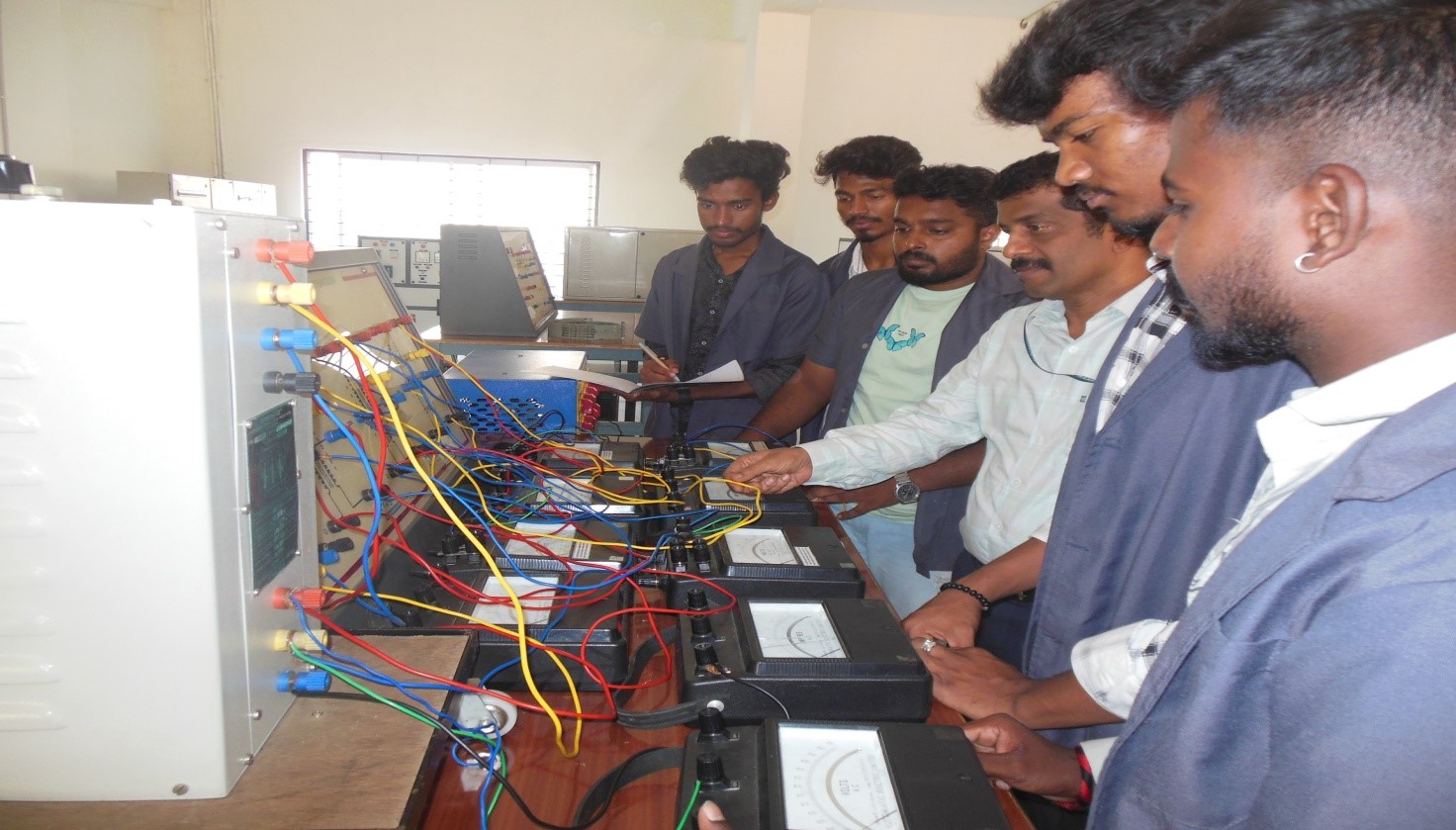
This laboratory is utilized by the students to conduct experiments related to Transformers and Synchronous machines and gain practical experience on them. This laboratory supports teaching, research and consultancy work on Transformers & Synchronous machines. The laboratory can also be used for project work related to electrical machines and energy conversion.
Digital system Design Laboratory
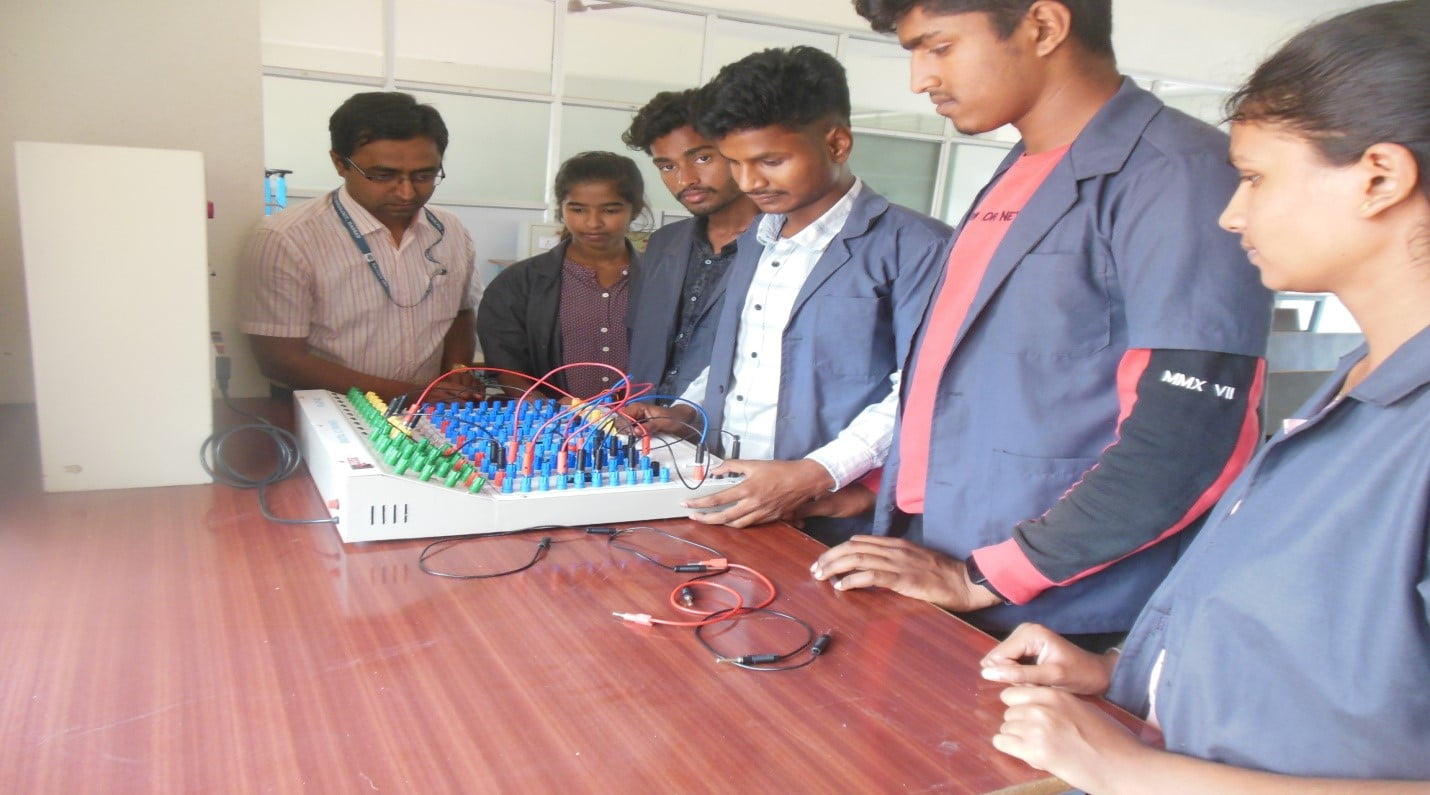
The lab facilitates design and study of the performance of various analog electronic circuits & Digital circuits. Lab mainly concentrates on designing and analyzing of rectifiers, amplifiers, oscillators. It also concentrates on designing of counters and registers, demonstrating the truth table of various expressions and combinational circuits using logic gates. Lab is equipped with the basic electronic instruments such as Digital meters, Power supplies, function generators, IC tester kit, IC trainer kit, Digital Oscilloscopes etc.
Electrical Machines Laboratory-2
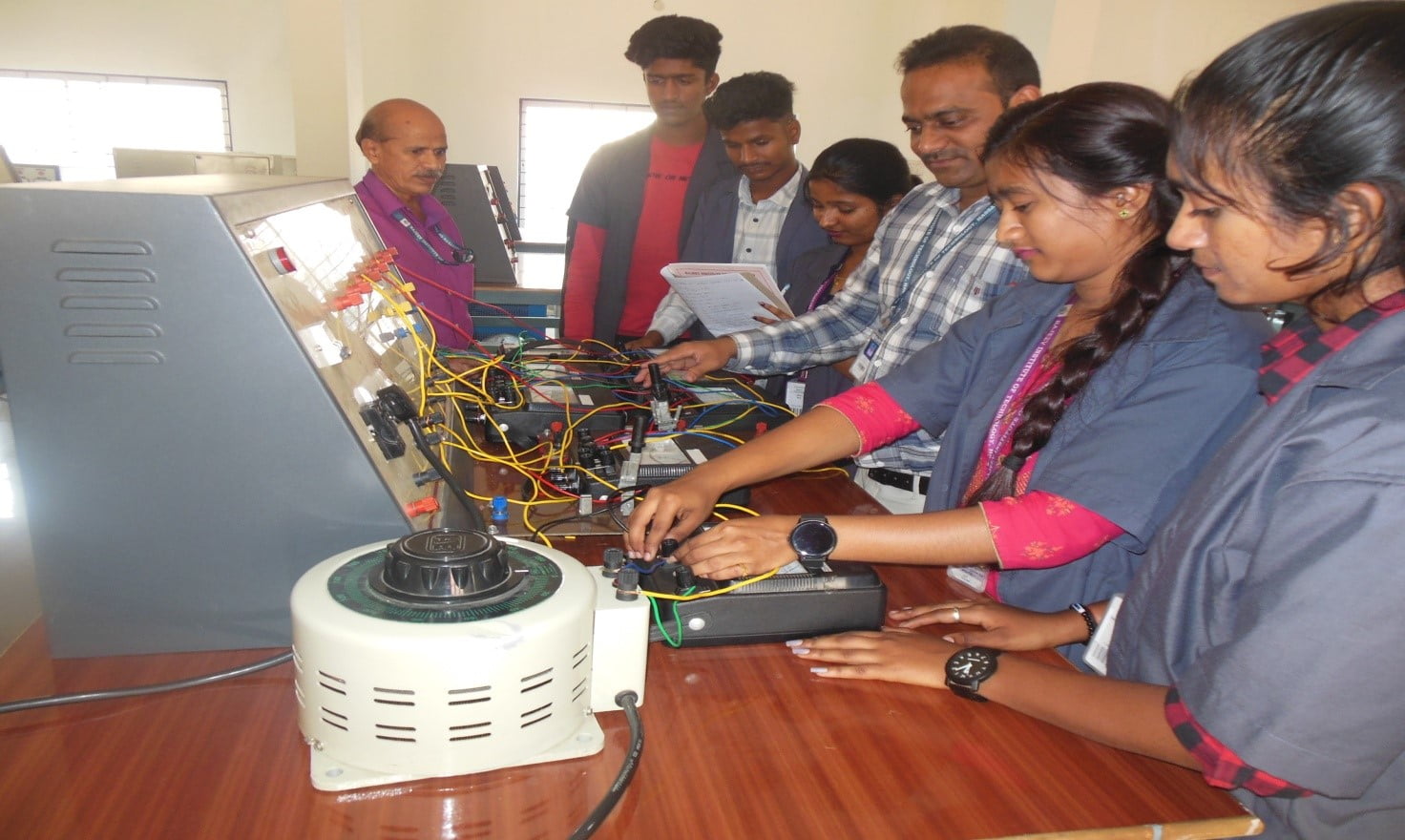
The main objective of this lab is to give the knowledge of D.C. machines & Induction Machines to the students which help to increase the technical skills of students. In this laboratory, we conduct various tests on D.C. machines to find the losses, efficiency and study their characteristics and various tests on induction machines to study the performance and its characteristics.
Analog Electronics Circuits Laboratory

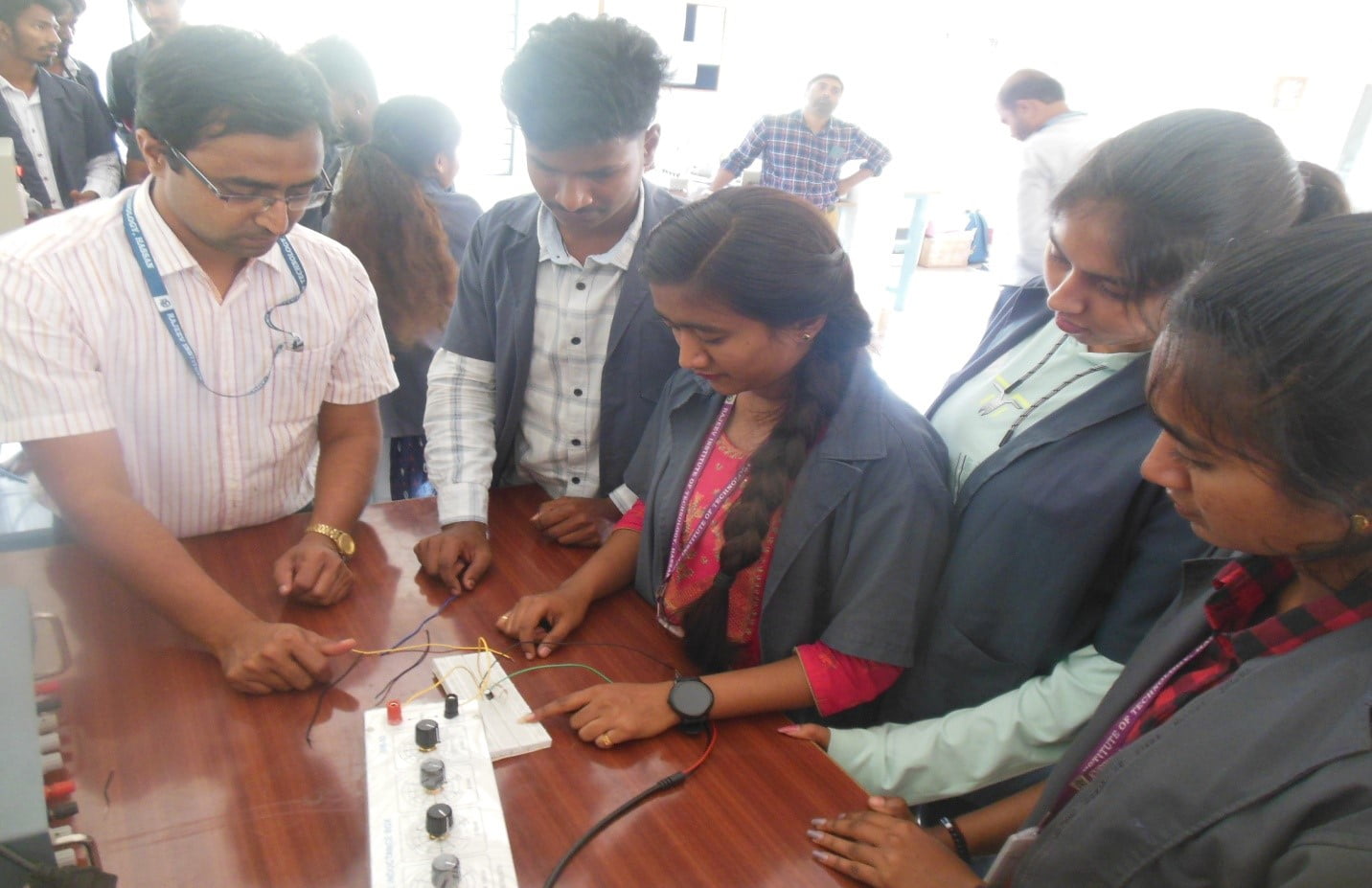
In this laboratory the students will be able to Study pin details, specifications, application features of IC741 (LM741) and IC555 (Timer). It mainly concentrates on designing and analyzing of precision rectifiers, amplifiers, oscillators, Signal Generators, Schmitt Trigger circuits and first order Butterworth Filters. It also concentrates on frequency response characteristics of Operational Amplifiers IC741 under Inverting and Non Inverting configurations. Laboratory is equipped with Digital meters, Power supplies, function generators, IC tester kit, Digital Oscilloscopes, IC trainer kit etc.
Microcontroller Laboratory
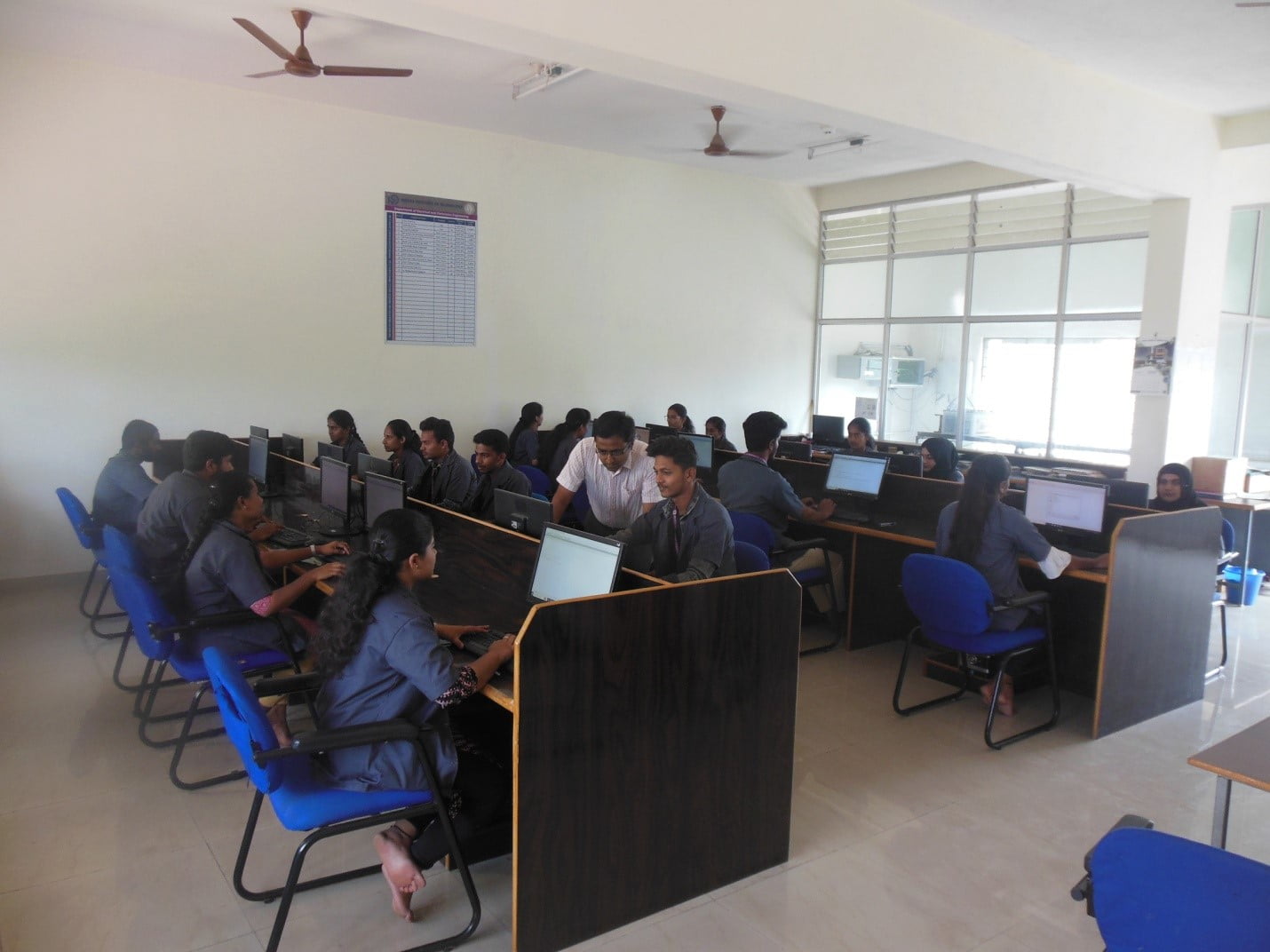
This laboratory enables students to understand basic concepts and applications of Microcontrollers. It is designed to understand the internal organization of Intel 8051 Microcontrollers, and for all the control oriented applications extensively used.
Power Electronics Laboratory
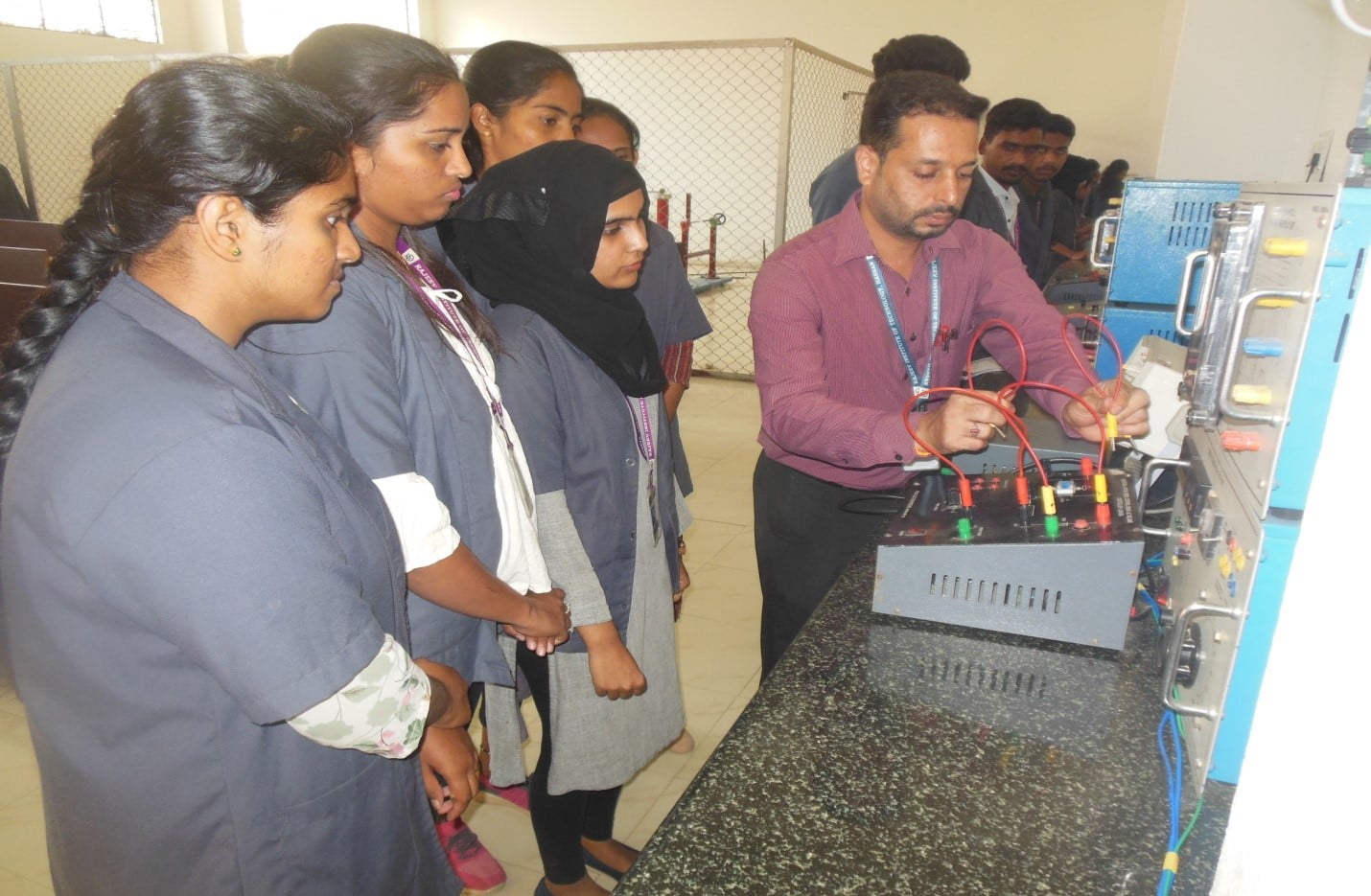
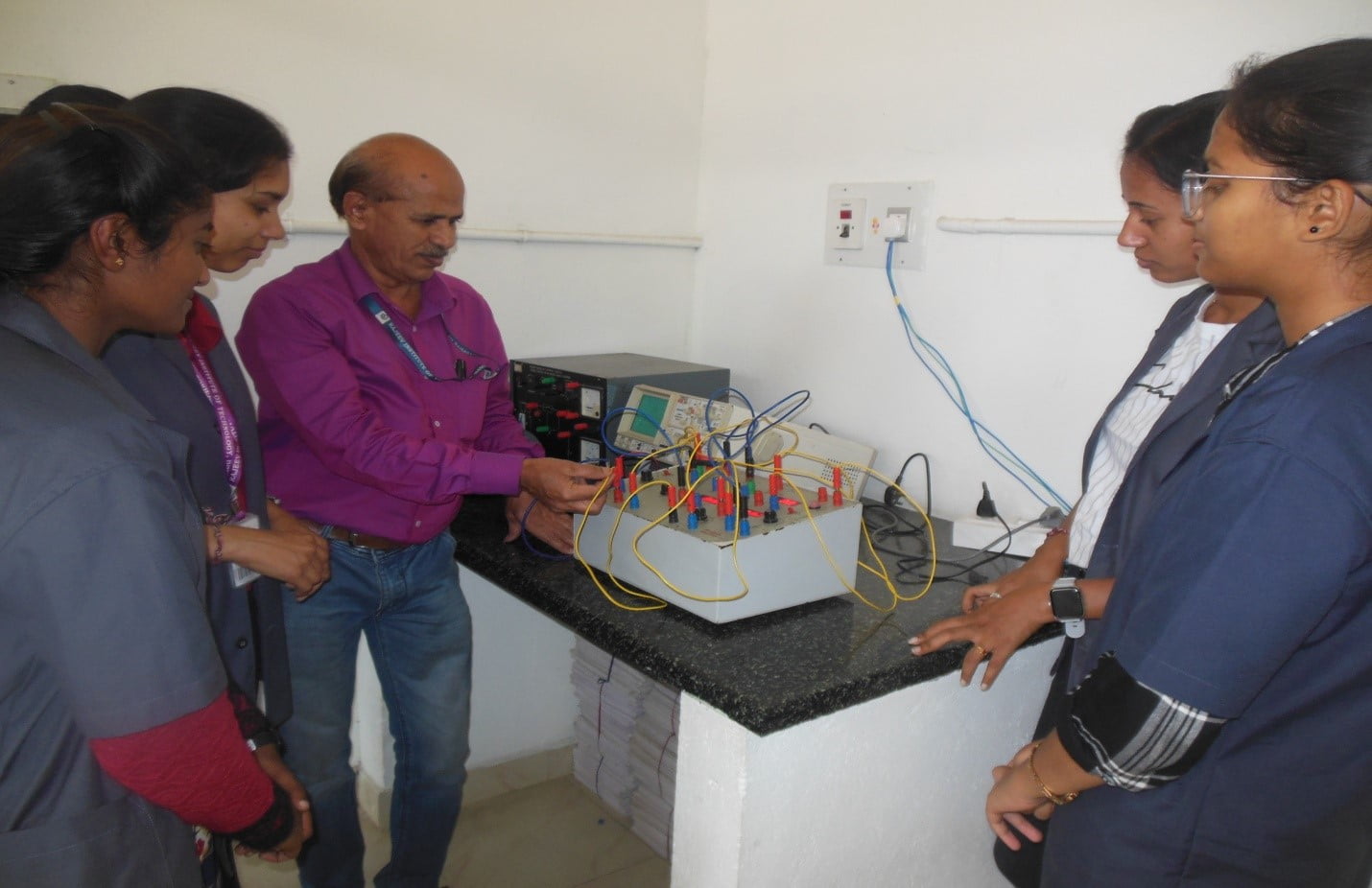
Power Electronics Lab enables the students to have hands on practice in power semiconductor devices, such as diode, thyristor, T.R.A.I.C., G.T.O., power M.O.S.F.E.T., I.G.B.T. and I.G.C.T., D.C. and A.C. regulated power supplies, Power Electronic control modules for speed control of separately excited dc motor, universal motor etc.
Control System Laboratory
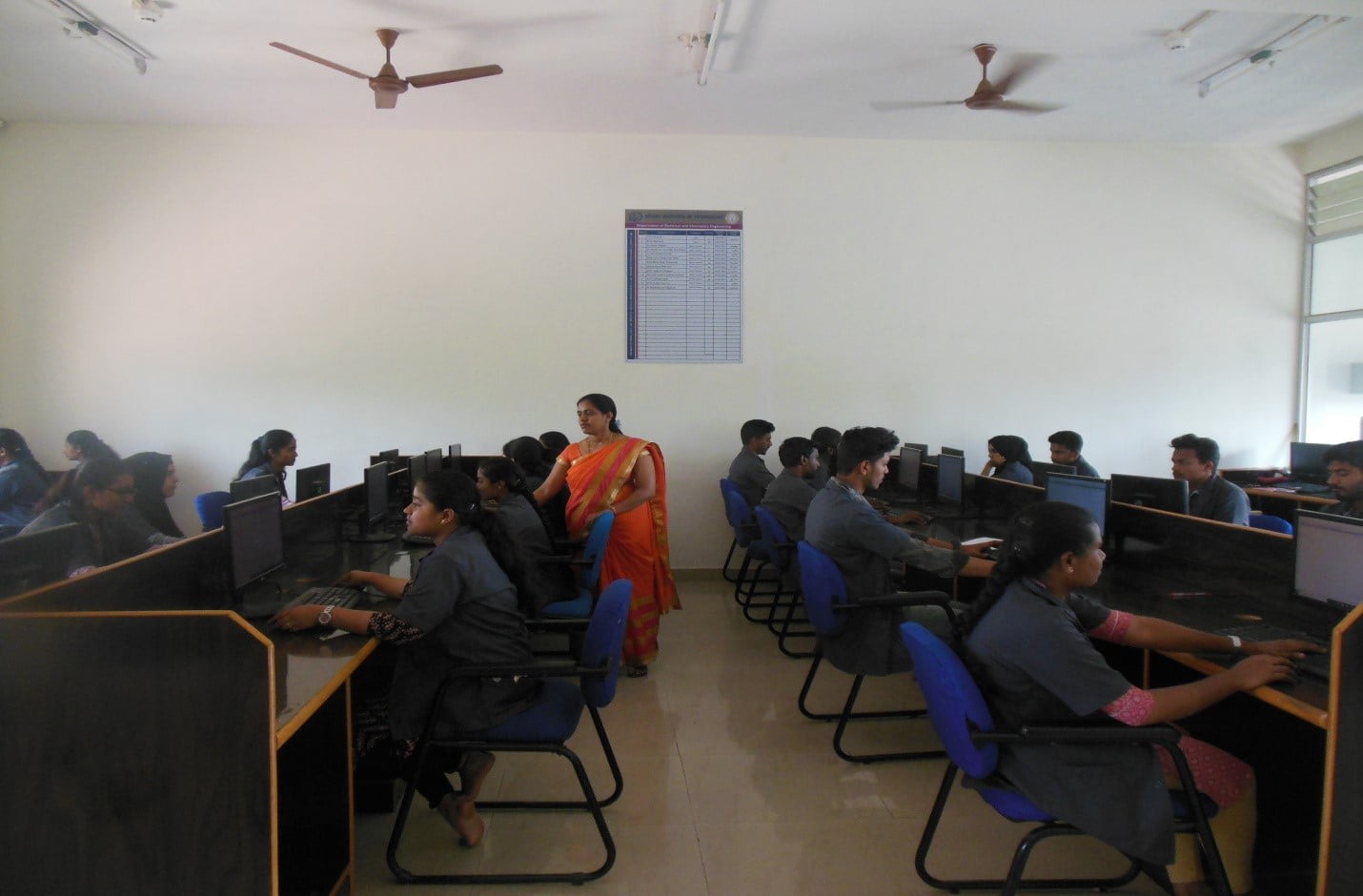
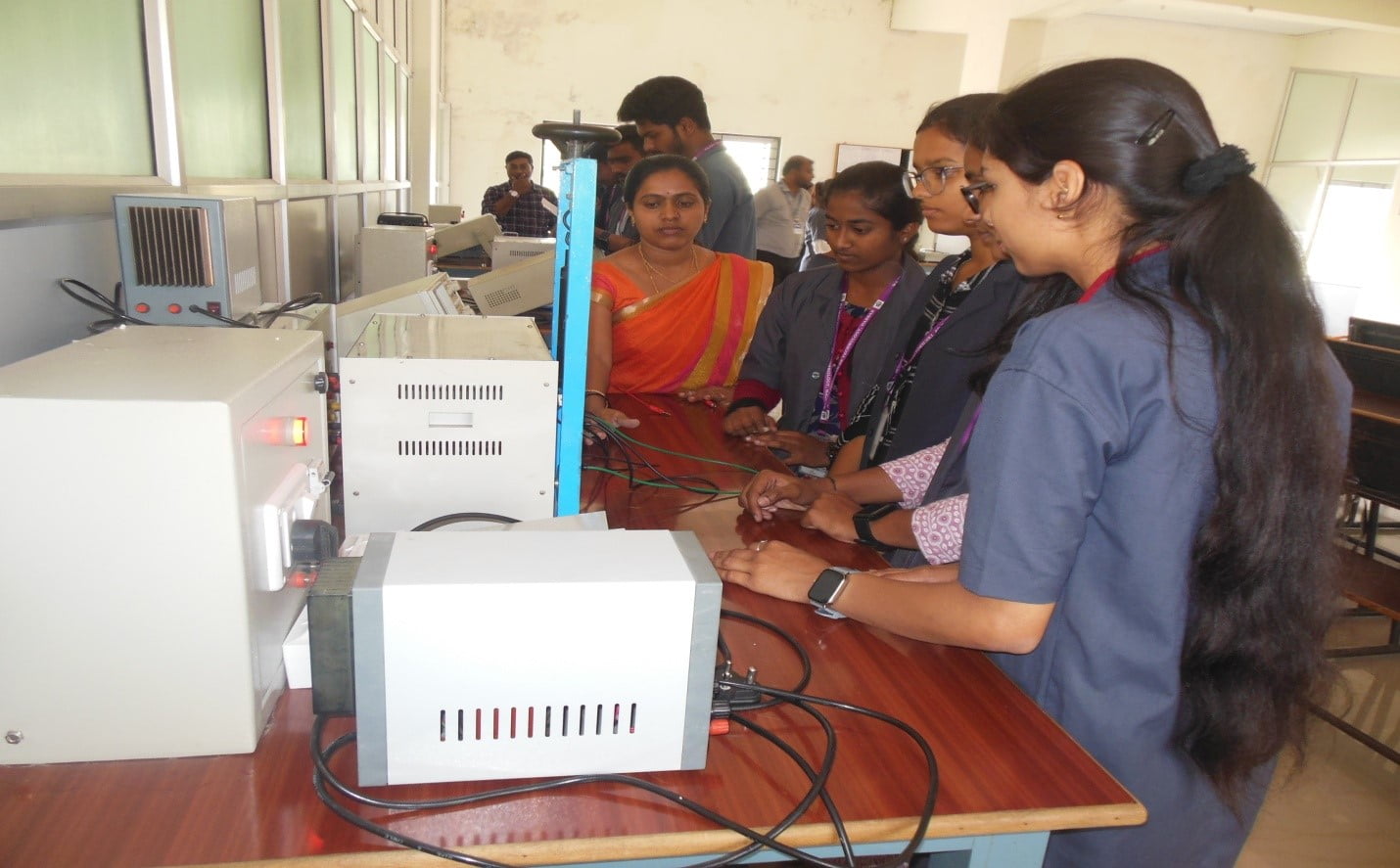
A control system plays a vital role in studying the stability studies of all electrical systems, which is highlighted in this laboratory. The analysis of Lag Lead compensator network, frequency response, effect of PID controllers, Speed torque Characteristics of AC & DC Servo motors, Scilab programming for second order, third order & DC Position control system are taught to students.
Digital Signal Processing Laboratory
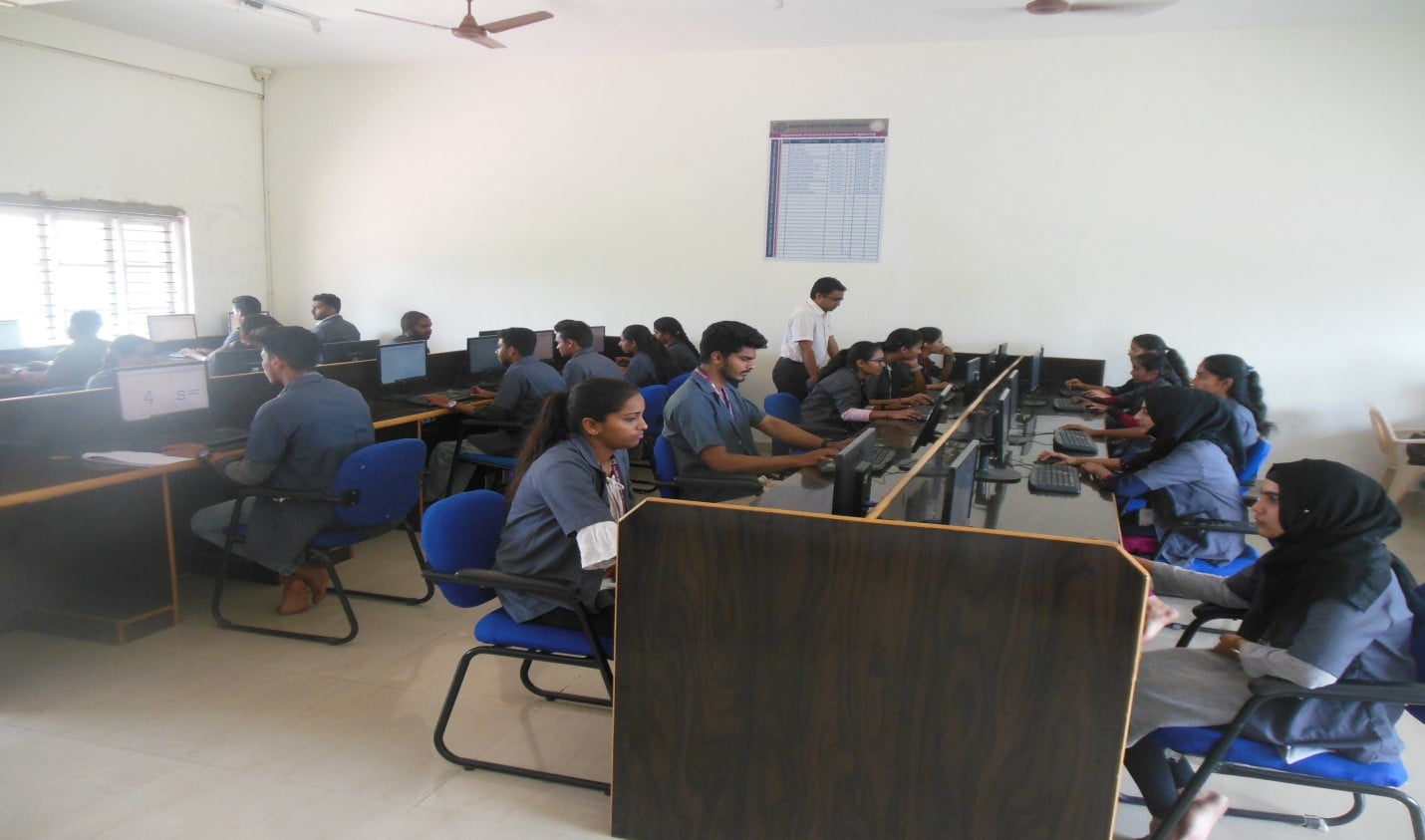
In this laboratory the digital signals are simulated using Scilab software. The student will be simulating linear and circular convolution and also study the design and simulation of IIR and FIR filters using various methods.
Power System Simulation Laboratory
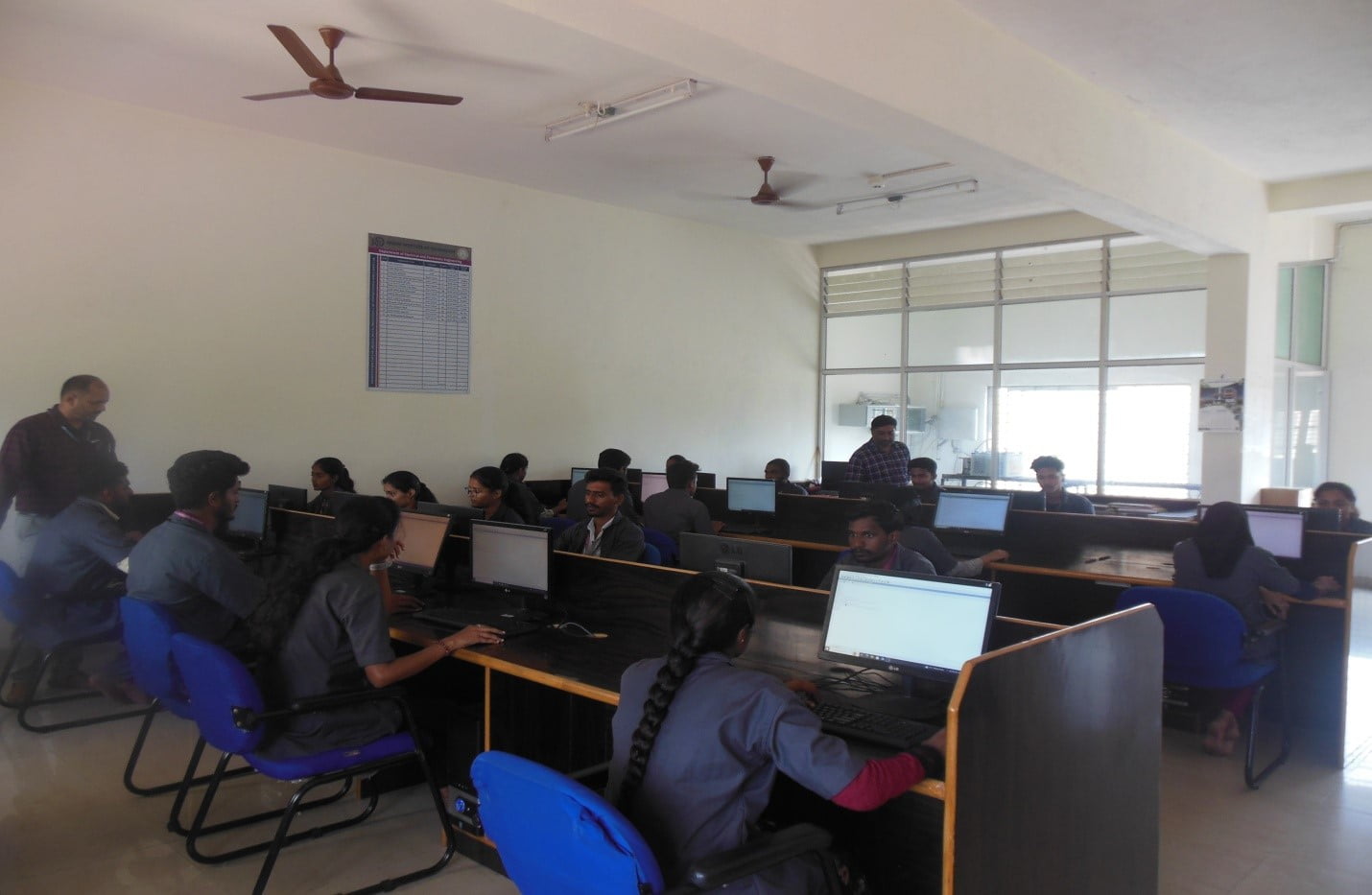
Laboratory is equipped with 24 computers with Scilab Simulation Package and LAN facility. Student can carry out load flow studies, short circuit analysis, Economic Dispatch and many power system related studies.
Relay and High Voltage Laboratory
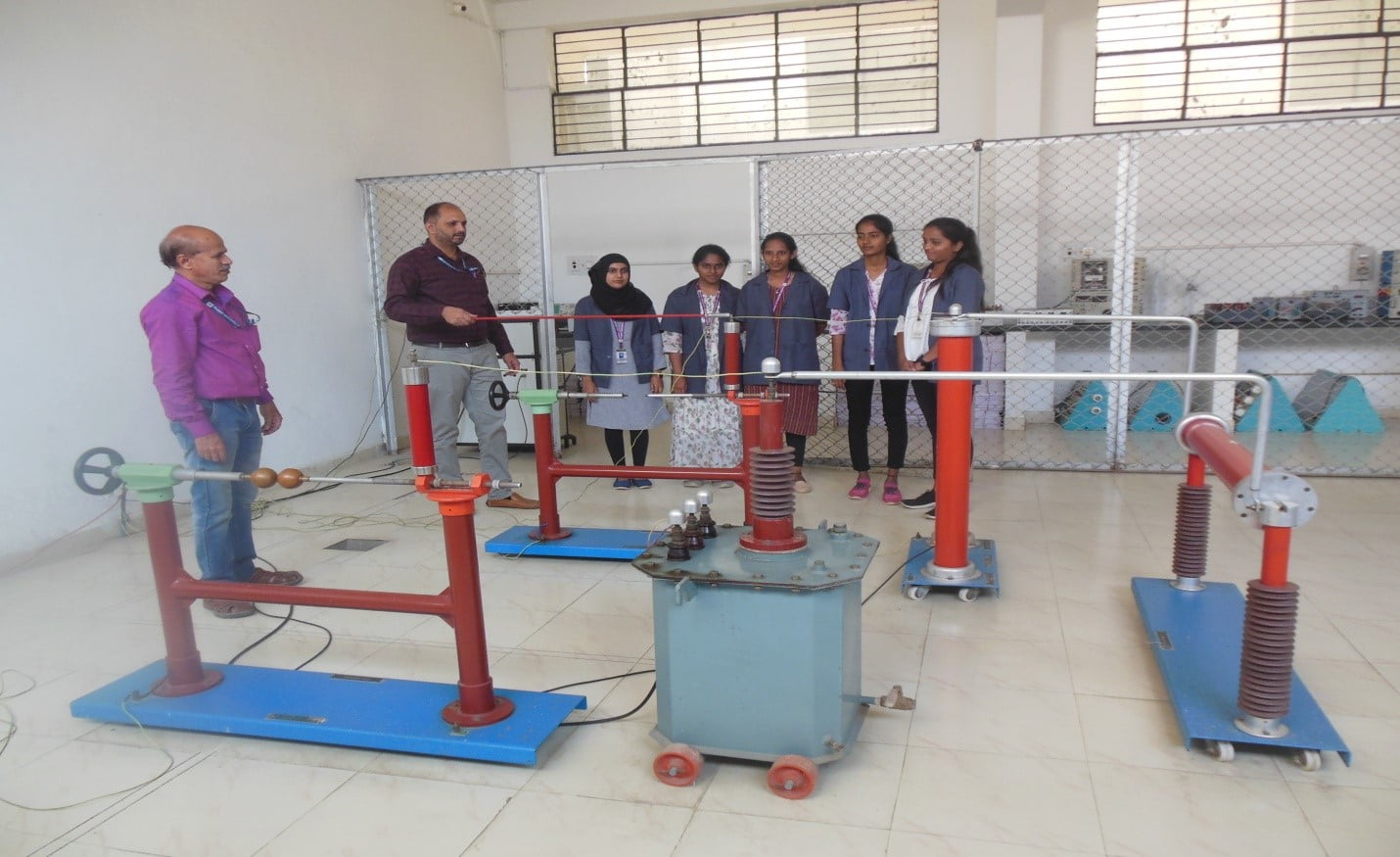
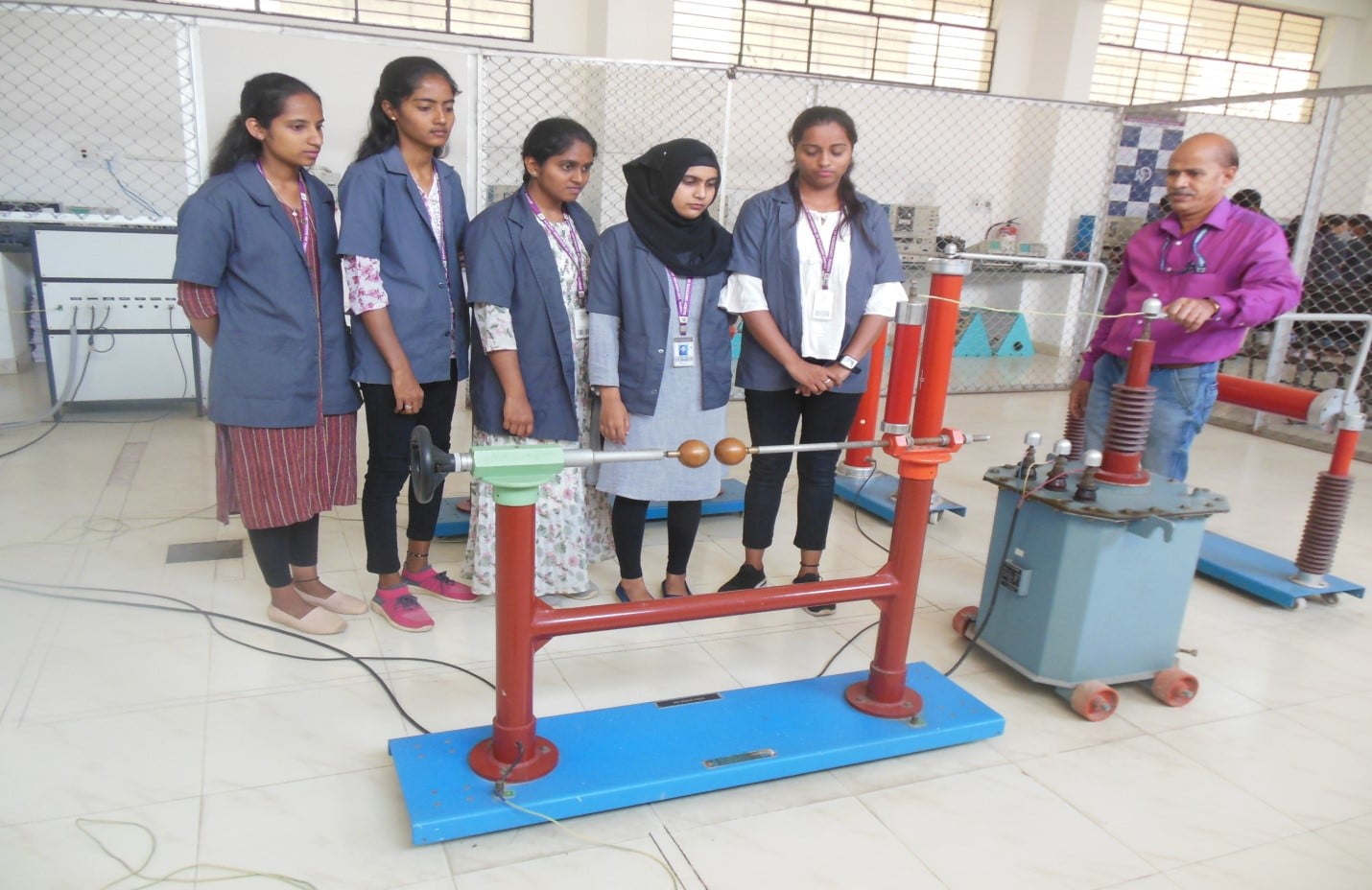
The laboratory is equipped with state of the art high voltage equipments to study the breakdown characteristics of air insulation for both uniform and non-uniform configurations. In relay part, the laboratory has different types of electromechanical, microprocessor based relays and negative sequence relay. These characteristics are analyzed and protection scheme for generator and motor are studied.
FACILITIES
| Sl. No. | Facilities | Utilization |
| 1 | S.D.C.C. free version software tool and Microcontroller 8051. | Projects work carried using microcontroller of students utilizes this facility. |
| 2 | Scilab free version software tool | This software is used for simulation and verification of signal processing, control system and power systems. |
| 3 | P-Spice vision 9.1 free version software for implementation of power circuits. | This software is used for simulation and verification of analog and mixed-signal circuits. |
INSTRUCTIONAL MATERIALS
- RIT Library is a resource center for teaching, learning & research.
- Library has e-Learning Centre, Reference Section and Journals/Magazines.
- Library holds a hybrid collection of printed as well as electronic resources which include books, journals, databases, audio-visuals, CDs/DVDs, e-books, e-journals, reports, course materials, previous years’ question papers, Bound Volumes, Project Reports, case studies, conference proceedings, training manuals, etc.
- Major Equipment and Software Tools available in various Laboratories.
HARDWARE TOOL
- D.C. regulated power supply model, Signal Generator and Cathode ray oscilloscope 30MHz (Digital Type & Analog Type)
- Digital IC Trainer Kit and Digital IC Tester
- Flash pro evaluation kit, LCD & keyboard interfacing kit, Dual DAC interfacing kit, Elevator interfacing kit Temperature controller interfacing kit, seven segment display and HEX Keyboard interfacing kit, Stepper Motor and DC Motor Interfacing kit.
- Static Characteristics of SCR, MOSFET, TRIAC and IGBT Module. SCR triggering using UJT relaxation oscillator kit, SCR Digital firing circuit for 1 phase converter kit, Single phase full wave converter with R and RL load, Speed control of stepper motor module, IGBT based single phase inverter circuit, Speed control of Universal motor and Induction motor using AC voltage controller and Speed control of a Separately excited DC motor using an IGBT or MOSFET chopper.
- Maxwell’s Inductance Bridge, Kelvin’s Double Bridge, Energy Meter Calibration Test Jig, CT Test Jig, Active and Reactive Power Measurement Test Jig and De-Sauty’s Capacitance Bridge.
- Capacitor start and run Induction motor, 3 Phase Squirrel cage Induction motor,3 Phase Slip ring Induction motor, Single Phase transformer 2KVA/230V 1:1 transformer, 2KVA/230V 1:1 transformer with tapings at 0 to 50%, 86%, 100%. 1KVA/230V 1:1 transformer, Rheostat Load, 1 Phase and 3 Phase Autotransformer, Digital tachometer.
- DC rectifier unit 220V, 100A with line and load regulation and protection circuit, DC Shunt Motor , DC shunt generator, DC Compound Motor , DC compound generator, DC series motor, salient pole alternator, auto start synchronous motor and non- salient pole alternator
- Lead Network Kit, Lag – Lead Network Kit, PID Controller Kit, DC Servo Motor Kit, AC Servo Motor, Frequency Response and Time Response Characteristics of Second Order Systems and Synchro transmitter receiver pair Unit.
- 50kV AC/70kV DC set, Rod Gap Apparatus, 62.5mm Sphere gap with water resistor, Over Voltage Electro Mechanical Relay Kit, Negative Sequence Relay Kit, Generator Protection & Motor Protection Scheme fault Study Unit, 60KV Oil Testing Kit, Over Current Relay – Directional Features and IDMT Directional, Numerical Relay Over/Under Voltage kit, Numerical Over Current relay kit and IDMT non-directional characteristics Relay Test Kit.
- SERVER with Internet facility, Printers, Scanners and LCD Projectors
SOFTWARE TOOL
- Freeware Version – Scilab, PSpice, S.D.C.C.
- Well Stocked Departmental Library
- Online access to Journals
Facilities for Faculty
- Well Stocked Department Library.
- Internet Facility with Wi-Fi connectivity.
- Online access to Journals.
- Study / Sabbatical leave for higher studies / industrial training.
- Maternity leave for ladies faculty.
- Transport facility for staff.
- Financial support to faculties to publish journals/Conference papers.
TOP NOTCH ALUMNUS OF ELECTRICAL AND ELECTRONICS ENGINEERING DEPARTMENT
Student Learning Centric Odd Semester details(2023-2024)
| Sl. No. | Subject Name | Subject Code | Faculty Name | Course Modules | Lesson plan | Notes of lessons | PPT | Laboratory Manual | ||||
|---|---|---|---|---|---|---|---|---|---|---|---|---|
| 1 | Engineering Mathematics for EEE | BEE301 | Ms. Sahana S S | Link | Link | Link | ||||||
| 2 | Electric Circuit Analysis | BEE302 | Mr. Vasanth Reddy G | Link | Link | Link | Link | |||||
| 3 | Analog Electronic Circuits | BEE303 | Mr. Jayaram M V | Link | Link | Link | Link | |||||
| 4 | Transformers and Generators | BEE304 | Mr. Velu A | Link | Link | Link | ||||||
| 5 | Transformers and Generators Lab | BEEL305 | Mr. Velu A | Link | Link | Link | ||||||
| 6 | Electrical Measurements and Instrumentation | BEE306B | Dr. Radhakrishna K R | Link | Link | Link | ||||||
| 7 | SCI LAB or MATLAB for Transformers and Generators | BEEL358A | Mr. Vishwas S | Link | Link | Link | ||||||
| 8 | Electric Motors | BEE401 | Mr. Nagendra Prasad H K | |||||||||
| 9 | Transmission and Distribution | BEE402 | Mr. Nagendra Prasad H K | |||||||||
| 10 | Microcontrollers | BEE403 | Mr. Velu A | |||||||||
| 11 | Electric Motors laboratory | BEEL404 | Mr. Velu A | |||||||||
| 12 | Electrical Power Generation and Economics | BEE405A | Mrs. Rashmi N | |||||||||
| 13 | SCI LAB or MATLAB for EEM | BEEL456B | Mrs. Rashmi N | |||||||||
| 14 | Biology For Engineers | BBOK407 | Mr. Jayaram M V | |||||||||
| 15 | Universal human values course | BUHK408 | Mr. Vasanth Reddy G | |||||||||
| 16 | Transmission and Distribution | 21EE51 | Mr. Vishwas S | Link | Link | Link | ||||||
| 17 | Control Systems | 21EE52 | Mrs. Rashmi N | Link | Link | Link | Link | |||||
| 18 | Power System Analysis – 1 | 21EE53 | Mr. Nagendra Prasad H K | |||||||||
| 19 | Power Electronics | 21EE54 | Mr. Jayaram M V | Link | Link | Link | Link | |||||
| 20 | Power Electronics Laboratory | 21EEL55 | Mr. Vishwas S | Link | Link | Link | ||||||
| 21 | Research Methodology & Intellectual Property Rights | 21RMI56 | Mr. Vasanth Reddy G | Link | Link | Link | ||||||
| 22 | Environmental Studies | 21CIV57 | Mr. Manjunath | |||||||||
| 23 | Management and Entrepreneurship | 21EE61 | Dr. Pradeep K G M | |||||||||
| 24 | Power System Analysis – 2 | 21EE62 | Mr. Velu A | |||||||||
| 25 | Signals and Digital Signal Processing | 21EE63 | Mr. Jayaram M V | |||||||||
| 26 | Sensors and Transducers | 21EE641 | Mr. Vasanth Reddy G | |||||||||
| 27 | Conservation of Natural Resources | 21CV654 | Mrs. Supriya C L | |||||||||
| 28 | Digital Signal Processing Laboratory | 21EEL66 | Mr. Vasanth Reddy G | |||||||||
| 29 | Power System Analysis II | 18EE71 | Mr. Nagendra Prasad H K | |||||||||
| 30 | Power System Protection | 18EE72 | Mr. Velu A | Link | Link | Link | ||||||
| 31 | Solar & Wind Energy | 18EE731 | Mrs. Rashmi N | Link | Link | Link | Link | |||||
| 32 | Utilization of Electrical Power | 18EE742 | Dr. Radhakrishna K R | Link | Link | Link | ||||||
| 33 | Artificial Intelligence | 18EE75 | Dr. Shrishailmath | |||||||||
| 34 | PSS Laboratory | 18EEL76 | Mr. Nagendra Prasad H K | |||||||||
| 35 | Relay and HV Lab | 18EEL77 | Dr. Radhakrishna K R | Link | Link | Link | ||||||
| 36 | Power System Operations & Control | 18EE81 | Mr. Nagendra Prasad H K | |||||||||
| 37 | Electrical Estimation & Costing | 18EE822 | Rashmi N | Link | Link | Link | Link |
Student Learning Centric details(2022-2023)
| Sl. No. | Subject Name | Subject Code | Faculty Name | Course Modules | Lesson plan | Notes of lessons | PPT | Laboratory Manual | Lab Videos |
|---|---|---|---|---|---|---|---|---|---|
| 1 | Transform Calculus, Fourior Series | 21MAT31 | Smitha M B | ||||||
| 2 | Analog Electrical Circuits & Op-amps | 21EE32 | Rashmi N | Link | Link | Link | |||
| 3 | Electric Circuit Analysis | 21EE33 | Vanditha, Jayaram M V | Link | Link | Link | |||
| 4 | Transformers & Generators | 21EE34 | Kiran B V | ||||||
| 5 | Electrical Machines Laboratory I | 21EEL35 | Kiran B V, Sandhya P | ||||||
| 6 | Complex Analysis, Probability & Linear Programming | 21MAT41 | Brunda N | ||||||
| 7 | Digital Sytem Design | 21EE42 | Chandra Babu Naidu | Link | Link | ||||
| 8 | Microcontroller | 21EE43 | Supriya Ananth K A | Link | Link | Link | Link | ||
| 9 | Electric Motors | 21EE44 | Shriharsha J | Link | Link | Link | Link | ||
| 10 | Biology for Engineers | 21BE45 | Sandhya P | ||||||
| 11 | Electrical Machines Laboratory II | 21EEL46 | Radhakrishna K R, Rashmi | Link | |||||
| 12 | Management and Entrepreneurship | 18EE51 | Jayaram M V | Link | Link | Link | Link | ||
| 13 | Microcontroller | 18EE52 | Kiran B V | ||||||
| 14 | Power Electronics | 18EE53 | Nagendra Prasad H K | Link | |||||
| 15 | Signals & Systems | 18EE54 | Jayaram M V | Link | Link | Link | |||
| 16 | Electrical Machine Design | 18EE55 | Vanditha G | Link | |||||
| 17 | High Voltage Engineering | 18EE56 | Harshitha Naval M N | Link | |||||
| 18 | Microcontroller Laboratory | 18EEL57 | Jayaram M V | Link | Link | Link | |||
| 19 | Power Electronics Laboratory | 18EEL58 | Nagendra Prasad H K | ||||||
| 20 | Control Systems | 18EE61 | Rashmi N | Link | Link | Link | |||
| 21 | Power System Analysis I | 18EE62 | Nagendra Prasad H K | Link | |||||
| 22 | Digital Signal Processing | 18EE63 | Jayaram M V | Link | Link | Link | |||
| 23 | Sensors & Transducers | 18EE641 | Kiran B V | ||||||
| 24 | Ocupational Health & Safety | 18CV653 | Soundarya D | Link | Link | ||||
| 25 | Control System Laboratory | 18EEL66 | Rashmi N | Link | Link | Link | |||
| 26 | Digital Signal Processing Laboratory | 18EEL67 | Jayaram M V | Link | Link | Link | |||
| 26 | Power System Analysis II | 18EE71 | Nagendra Prasad H K | ||||||
| 27 | Power System Protection | 18EE72 | Sandhya P | ||||||
| 28 | Solar & Wind Energy | 18EE731 | Harshitha Naval M N | Link | |||||
| 29 | Utilization of Electrical Power | 18EE742 | Radhakrishna K R | Link | Link | Link | Link | ||
| 30 | Energy & Environment | 18ME751 | Rashmi N | Link | Link | Link | Link | ||
| 31 | PSS Laboratory | 18EEL76 | Nagendra Prasad H K | ||||||
| 32 | Relay and HV Lab | 18EEL77 | Sandhya P | ||||||
| 33 | Power System Operations & Control | 18EE81 | Nagendra Prasad H K | ||||||
| 34 | Electrical Estimation & Costing | 18EE822 | Rashmi N | Link | Link | Link | Link |
Staff Achievements
FACULTY ACHIEVEMENTS
FACULTY PUBLICATIONS
Journals/ Conferences | International | National | Total |
| Journals | 48 | – | 48 |
| Conferences | 13 | 18 | 31 |
TEXT BOOKS PUBLISHED
| Text Book | Author/s |
| “Micro Electro Mechanical Systems” [ISBN –978-93-5620-197-2] as co- author in Sciro International Publishers (https://sciropub.com/published-books.html) 2022. | Dr.M.M.Prasada Reddy, Dr.Pradeep K G M, Dr.Umesha G B, Dr.D.Rammurthy |
| Book Chapter: Design and simulation of Voltage Source Converter based HVDC Transmission | Dr. Shri Harsha J, Dr. Thejaswini R |
JOURNAL REVIEWERS
| Name | Journal | Type |
| Dr. Pradeep K G M | · The Hertz Journal of Engineering (HERTZ). · International Journal of Creative Research and Thoughts (IJCRT). · Journal of Emerging Technologies and Innovative Research (JETIR). | Peer Reviewed Journals |
| Dr. Radhakrishna K R | 2021-The First Edition of the Flagship International Conference Series of IEEE Mysore Sub Section in association with IEEE Bangalore Section at NAVKIS College of Engineering, Hassan on 24th & 25th October 2021. | IEEE |
| Dr. Shri Harsha J | · INSC International Journal under the stream Electrical and Electronics Engineering · IEEE 3rd International Conference on TEMSMET-2023 organized by Vidya Vikas Institute of Engineering and Technology, Mysuru · International Conference on Internet of Things, Communication, Intelligence and Computing organized by Shridevi Institute of Engineering and Technology, Tumakuru · International Conference on Power, Control and Sustainable Energy Systems (ICPCSES-2022) organized by Department of EEE, B.M.S. College of Engineering, Bengaluru | Peer Reviewed Journals |
CONFERENCE REVIEWERS
Name | Name | Conference | Type |
| Mr. Nagendra Prasad H K | International conference on “Technology, Engineering, Management for Societal impact using Marketing, Entrepreneurship & Talent (TEMSMET 2023)” | IEEE | IEEE |
STAFF ACHIEVEMENTS
Dr. Pradeep K G M, Received “Best Young Faculty “award from Research Education Solutions (Registered as Micro Enterprise under MSME, Government of India) 2022.
Dr. Radhakrishna K R received Gold medal for successful completion of Ph.D., in N.I.E. Mysuru
Dr. Shri Harsha J was on Session Chair” in IEEE 3rd International Conference on TEMSMET-2023 organized by Vidya Vikas Institute of Engineering and Technology, Mysuru.
Dr. Shri Harsha J had received Young Researcher Award-2022.
Dr. Shri Harsha J was the Energy Club Coordinator funded by AICTE, New Delhi through SPICES for FY 2021-2022.
Dr. Shri Harsha J was the Research Coordinator for “Energy Conservation and sustainable Infrastructure Lab” funded by VGST, KSTePS, Bangalore,
Mr. Nagendra Prasad H K had Chaired a session in National Conference on Emerging Technologies in Engineering (NCETE-2023) at NAVKIS college of Engineering, Hassan on 12th May 2023.
Student Achievements
STUDENT ACHIEVEMENTS
Ms. Bhoomika M S (4RA18EE004) have Secured 9th V.T.U. Rank for the 2018-2022 Batch.
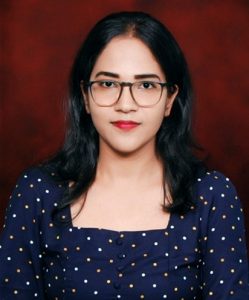
- Rohan M N, Mr. Darshan Y and Mr. Jeevan lobo had participated in HACKINTOSH-EVO at RIT, Hassan from 4th October 2019 to 5th October 2019.
- Rohan M N, Mr. Darshan Y and Mr. Jeevan lobo, had secured Third Place in State Level Technical Fest “avagamah” at ATME, Mysuru on 14th November 2019.
- Bhoomika M S, had participated in State Level Technical Fest “avagamah” at ATME, Mysuru on 14th November 2019.
- Bhoomika M S and Ms. Keerthana A R, had secured First Place in National Level Technical Fest at AIT, Chikkamagaluru.
- Jeevan lobo and Mr. Darshan Y, had participated in Block-Athon 2019 at Srichid, Mandya.
- Jeevan lobo and Mr. Darshan Y, had participated in Markerspace program at Infosys, Mysuru.
- Bhoomika M S, had participated in Workshop on Data Science at VIT, Bengaluru from 25th January 2020 to 31st January 2020.
- Bhoomika M S, had participated in Online Event “Electroquest” at MCE, Hassan on 29th April 2020.
- Bhoomika M S, had participated in Inter College Technical Fest – Exousia 2021 at GSSS, Mysuru on 24th July 2021.
- Pramod H J, Mr. Manjunath Y S, Mr. N S Swaroop, Mr. Vishwanatha, Mr. Pradeep T R and Mr. Shylesh Kumar B K had presented a technical paper at National level Students’ Technical Paper, SYMPOSIUM-6 at HMSIT, Tumakuru on 22nd march 2014.
Student Achievements in Sports
STUDENT ACHIEVEMENTS IN SPORTS
- Mr.PUNEETH H J participated in Men Badminton Tournament organized under VTU events. He participated in the team which took part in The VTU Central Karnataka Zone Men Badminton Tournament 2017-18 organized by KIT, TIPTUR from 4th to 5th April 2017.
- Mr.ABHISHEK H R participated in Men Kabaddi Tournament organized under VTU events. He participated in the team which took part in The VTU Central Karnataka Zone Men Kabaddi Tournament 2017-18 organized by MCE, HASSAN from 12th to 13th April 2017.
- Mr. HEMANTH G R, Mr. Lokesh B G and MOHAN A A participated in Men Kho Kho Tournament organized under VTU events. They participated in the team which took part in The VTU Inter Collegiate Central Karnataka Zone Men Kho Kho Tournament 2018-19 organized by KIT, TIPTUR from 1st to 2nd March 2018.
- Mr.PUNEETH H J and Mr. JEEVAN LOBO participated in Men Badminton Tournament organized under VTU events. They participated in the team which took part in The VTU Central Karnataka Zone Men Badminton Tournament 2018-19 organized by MCE, HASSAN from 27th to 28th August 2018.
- Ms.LAKSHMI A M participated in Women Throwball Tournament organized under VTU events. She participated in the team which took part in The VTU Central Karnataka Zone Women Throwball Tournament 2018-19 organized by BIET, DAVANAGERE from 9th to 10th October 2018.
- Ms.LAKSHMI A M participated in Women Throwball Tournament organized under VTU events. She participated in the team which took part in The VTU Inter Zone Women Throwball Tournament 2018-19 organized by MCE, HASSAN from 12th to 13th October 2018.
- Mr.JANARDHAN B R and Mr.YOGEESH V K WON in Men Volleyball Tournament organized under VTU events. They participated in the team which took part in The VTU Central Karnataka Zone Men Volleyball Tournament 2019-20 organized by JNNCE, SHIVAMOGGA from 9th to 10th March 2019.
- Mr.JANARDHAN B R and Mr.YOGEESH V K participated in Inter Collegiate Men/Women VTU Athletic Meet organized under VTU events, organized by JNNCE, SHIVAMOGGA from 22nd to 25th March 2019.
- Ms.LAKSHMI A M participated in Women Throwball Tournament organized under VTU events. She participated in the team which took part in The VTU Central Karnataka Zone Women Throwball Tournament 2019-20 organized by PESIT, SHIVAMOGGA from 18th to 19th October 2019.
- Mr. RAJESH D participated in Men Kho Kho Tournament organized under VTU events. He participated in the team which took part in The VTU Inter Collegiate Central Karnataka Zone Men Kho Kho Tournament 2020-21 organized by SIT, TUMAKURU from 27th to 28th February 2020.
- Ms. GANAVI N GOWDA participated in Women Throwball Tournament organized under VTU events. She participated in the team which took part in The VTU Central Karnataka Zone Women Throwball Tournament 2022-2023 organized by SIT, TUMAKURU from 16th to 17th March 2023.
- Mr. Sharath P participated in Men Cricket Tournament organized under VTU events. He participated in the team which took part in The VTU Central Karnataka Zone men Cricket Tournament 2022-23 organized by PESITM, SHIVAMOGGA from 13th to 15th October 2023.
- Mr. RAJESHA D and Mr. JAFER S participated in Badminton Tournament organized under VTU events. They participated in the team which took part in The VTU Central Karnataka Zone Men Badminton Tournament 2012-23 organized by MCE, HASSAN from 4th to 5th November 2022.
- Mr. ABHISHEK U N participated in Men Volleyball Tournament organized under VTU events. He participated in the team which took part in The VTU Central Karnataka Zone Men Volleyball Tournament 2022-23 organized by AIT, CHIKKAMAGALURU from 18th to 19th March 2023.
Research Initiatives
List of Faculty completed Ph.D.
Sl. No. | Name of Faculty | Designation | Teaching Experience | Research Experience | Industrial Experience |
| 1 | Dr. Pradeep K G M | Associate Professor and H.O.D. | 09 | 04 Years | – |
| 2 | Dr. Radhakrishna K R | Professor | 23 | 08 Years | – |
| 3 | Dr. Shri Harsha J | Associate Professor | 13 | 08 years | 03 Months |
List of Ph.D. pursuing Candidates
Sl. No. | Name | Status | Research Centre | Internal or External |
| 1 | Nagendra Prasad H K | Registered | SSAHE, Tumakuru | External |
| 2 | Velu A | Registered | SRMIST, Chennai | External |
| 3 | Vasanth Reddy G | Registered | VTU | External |
List of Funded Projects
Name of the Project/ Endowments, Chairs | Name of the Principal Investigator/Co-investigator | Year of Award | Amount Sanctioned | Duration of the project | Name of the Funding Agency | Type (Government/ non-Government) |
| Karnataka State Energy Conservation Fund | H.O.D., EEE | 2022-23 | 50,000 | One year | KREDL | Government |
| Karnataka State Energy Conservation Fund | H.O.D., EEE | 2021-22 | 50,000 | One year | KREDL | Government |
| Karnataka State Energy Conservation Fund | H.O.D., EEE | 2020-21 | 50,000 | One year | KREDL | Government |
| Karnataka State Energy Conservation Fund | H.O.D., EEE | 2019-20 | 50,000 | One year | KREDL | Government |
| Renewable Energy based Wireless Charging of Electric Vehicles | Dr.Radhakrishna K R | 2021-22 | 5,000 | 6 months | Visvesvaraya Technological University (VTU) | Government |
| Monitoring Vehicular Pollution Causes Global Warming | Mrs.Sowmya G R | 2021-22 | 5,000 | 6 months | Visvesvaraya Technological University (VTU) | Government |
| “Low cost ventilator with blood oxygen sensing” | Mrs. Sowmya G R | 2020-21 | 5,000 | 6 months | Visvesvaraya Technological University (VTU) | Government |
| “IOT based smart irrigation system” | Mr. Nagendra Prasad H K | 2020-21 | 5,000 | 6 months | Visvesvaraya Technological University (VTU) | Government |
| Soldier Position Tracking and Health Monitoring System | Mrs. Sowmya G R | 2019-20 | 5,000 | 6 months | Visvesvaraya Technological University (VTU) | Government |
| Automatic Car Parking System Using IOT | Mr. Arun H | 2019-20 | 5,000 | 6 months | Visvesvaraya Technological University (VTU) | Government |
| Design and Fabrication of River Cleaning Machine | Mrs.Sowmya G R | 2018-19 | 5,000 | 6 months | Visvesvaraya Technological University (VTU) | Government |
| Intelligent Piezoelectric harvesting a Sustainable Approach to A Clean Energy Generation | Mr. Manjunth H M | 2018-19 | 5,000 | 6 months | Visvesvaraya Technological University (VTU) | Government |
PLACEMENTS AND HIGHER STUDIES
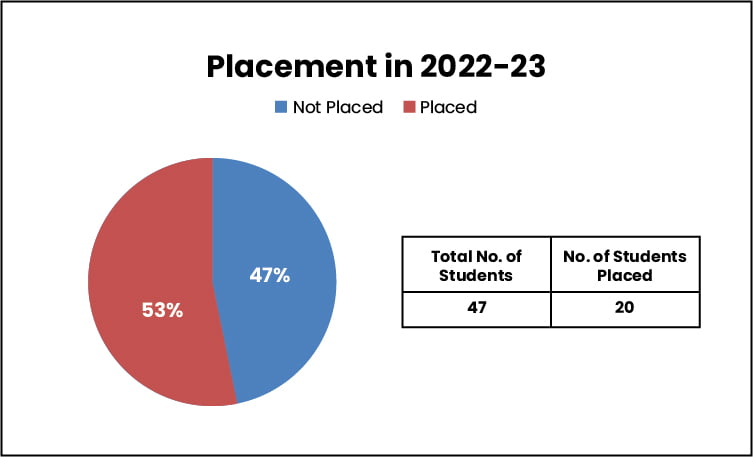
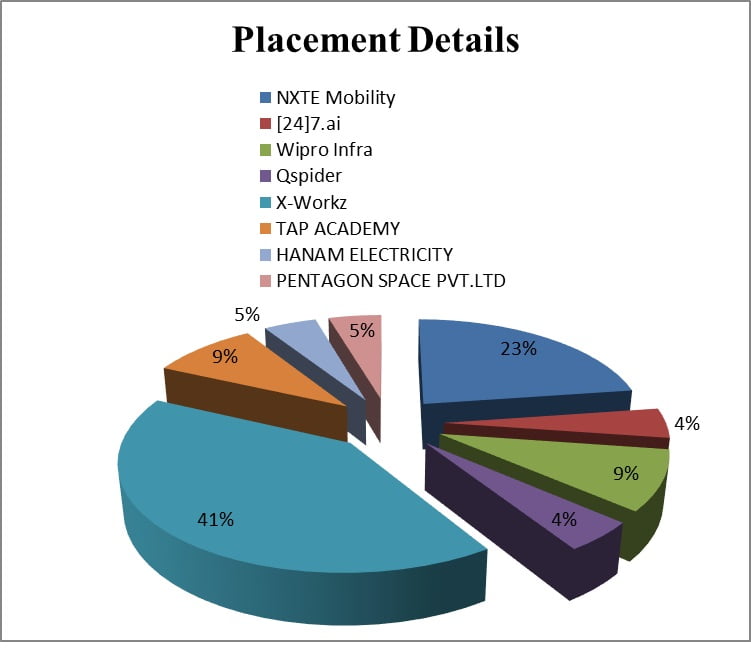
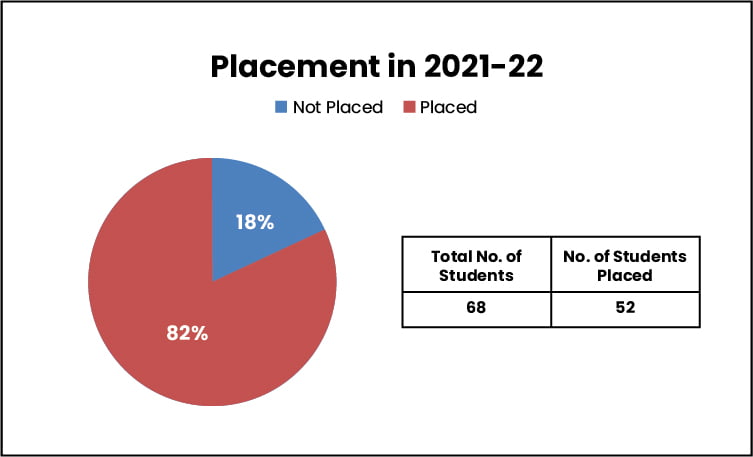
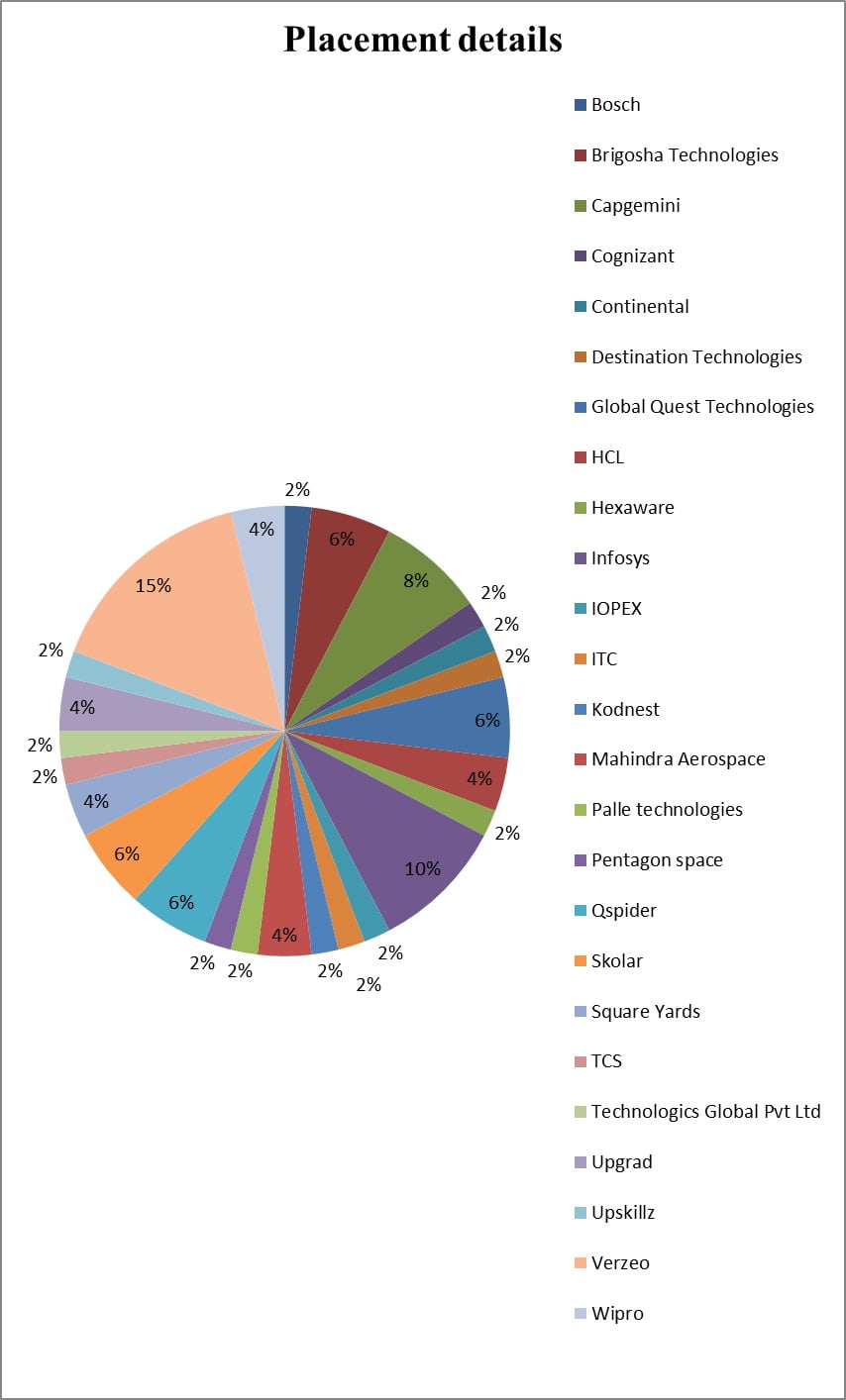
Co-curricular & Extra curricular Activities
Workshop on Switch Gears & its Applications by dbson, Universal Power Controls was conducted from 10/11/2018 to 13/11/2018.

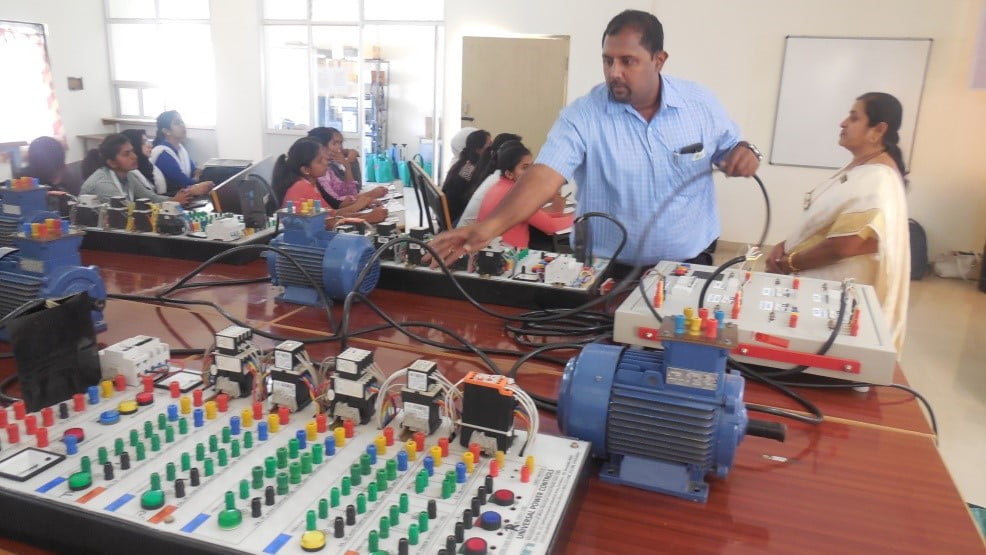
The Technical talk on Recent trends in Solar energy system for ON and OFF grid applications was conducted on 10.0.2019 by Dr. Rajanna S., Professor, E.E.E. Department, M.C.E., Hassan.
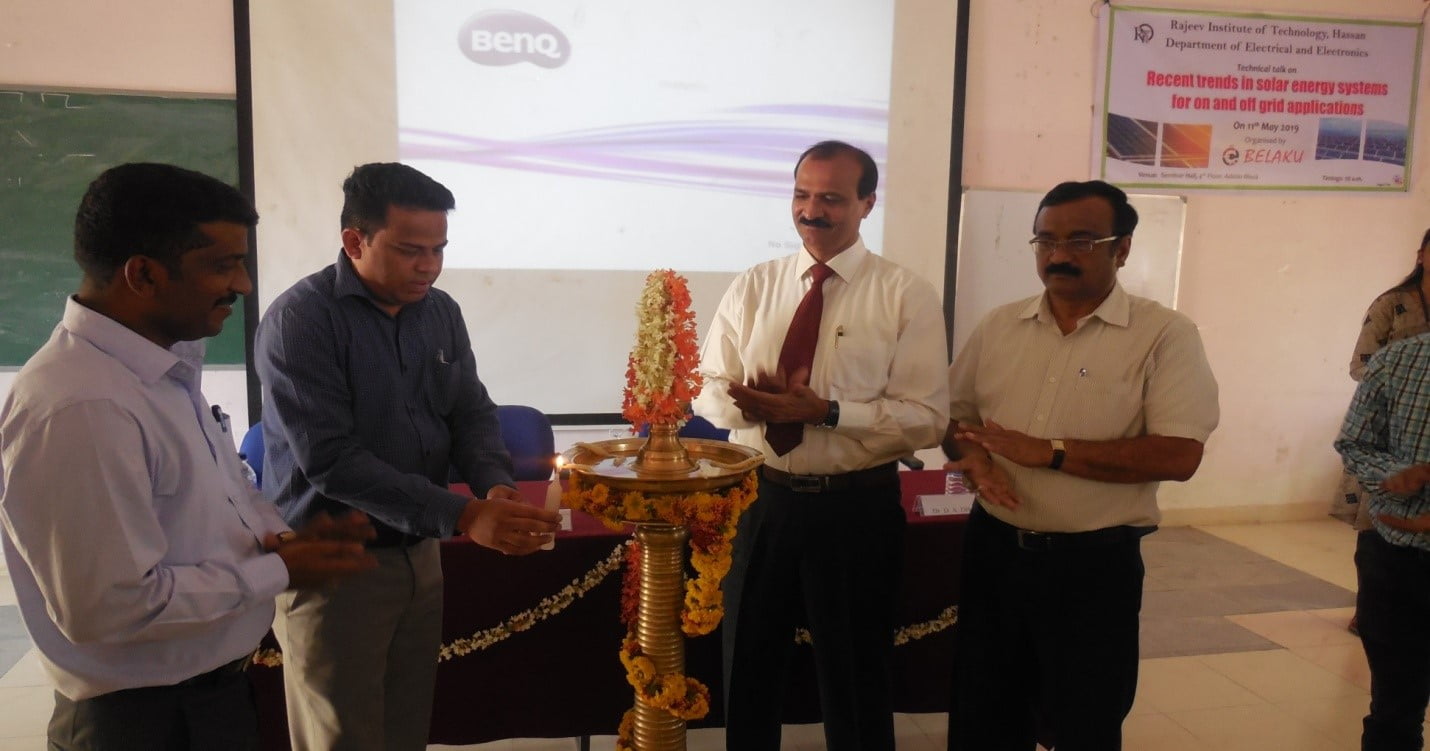
Four days Workshop on Electrical Switchgear & its Applications by DEBESON, was conducted from 04/11/2019 to 07/11/2019.
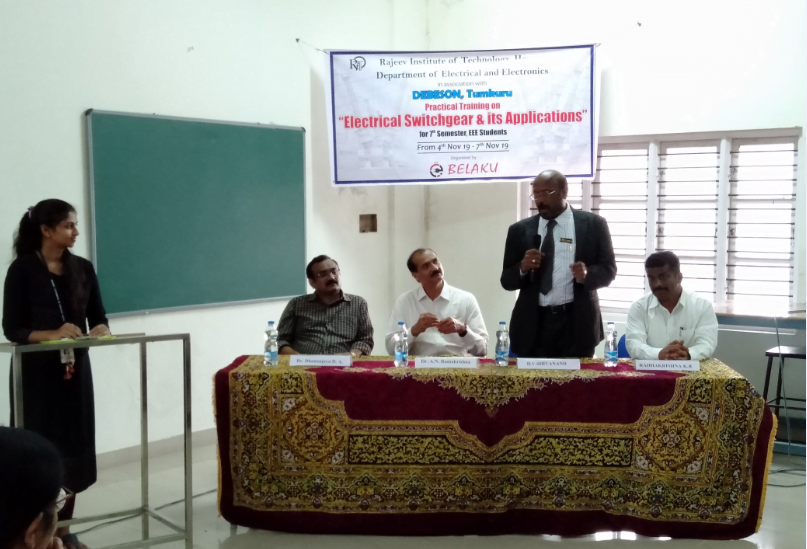
Three days Workshop on C in association with Seventh Sense, was conducted from 08/11/2019 to 10/11/2019, organised by E BELAKU club.
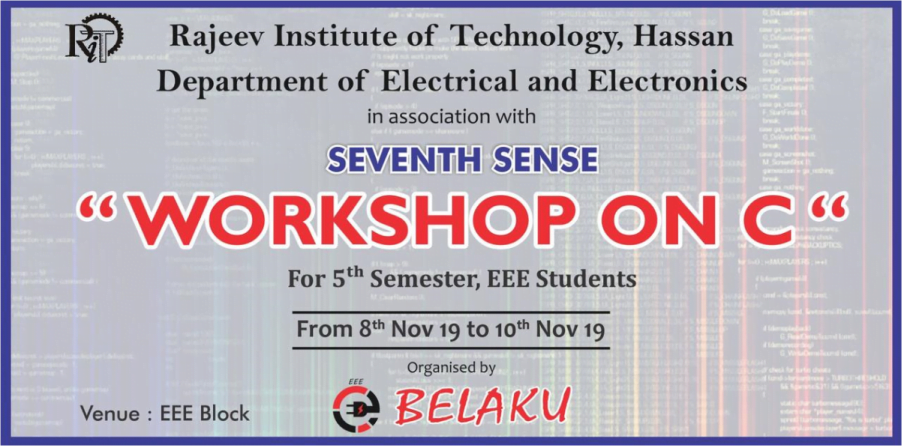
A talk by Sri H.S.Venkatesh, Additional chief Electrical Inspectorate, Mysuru was organized on 28.12.2020 regarding National Energy Conservation Week in association with K.R.E.D.L.
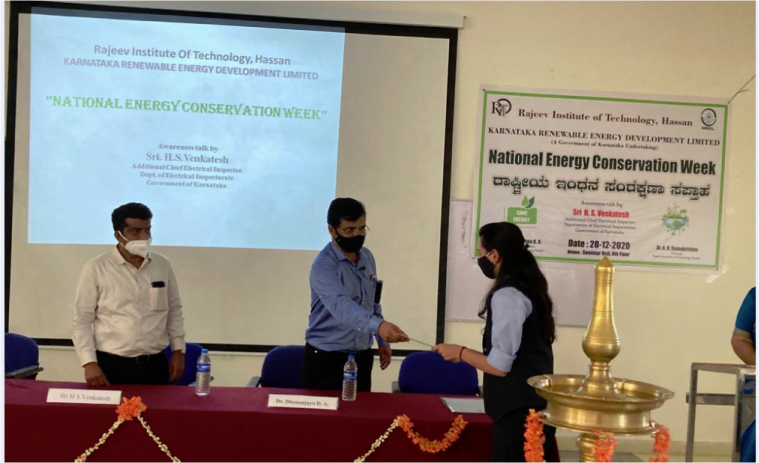
A Talk by Dr.Gopalareddy K., Professor, EEE Department, V.V.C.E., Mysuru, was organized on 14.01.2022 regarding Challenges and Opportunities for Electric Vehicles in India and it’s importance in Energy conservation.
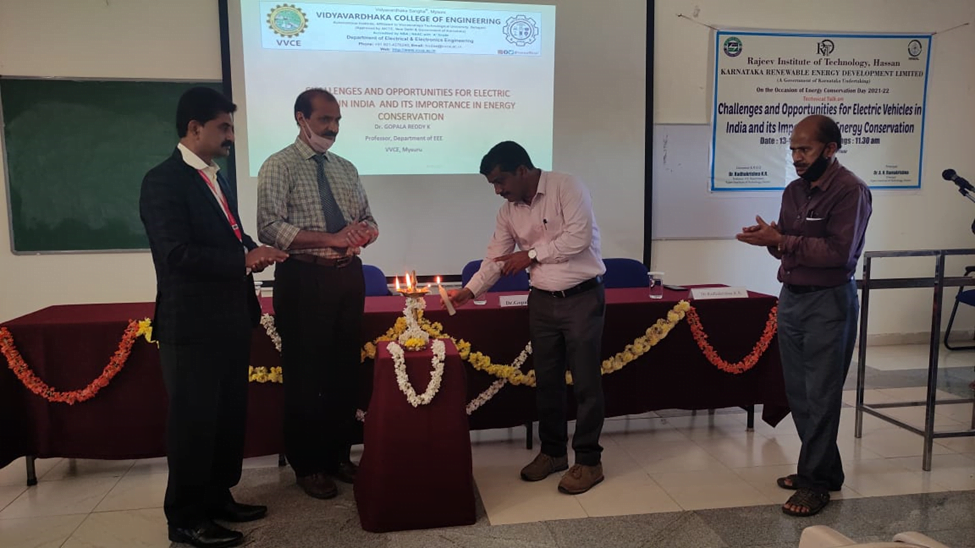
Five days Workshop on Recent Developments in Power Systems was conducted from 23/11/2020 to 27/11/2020.
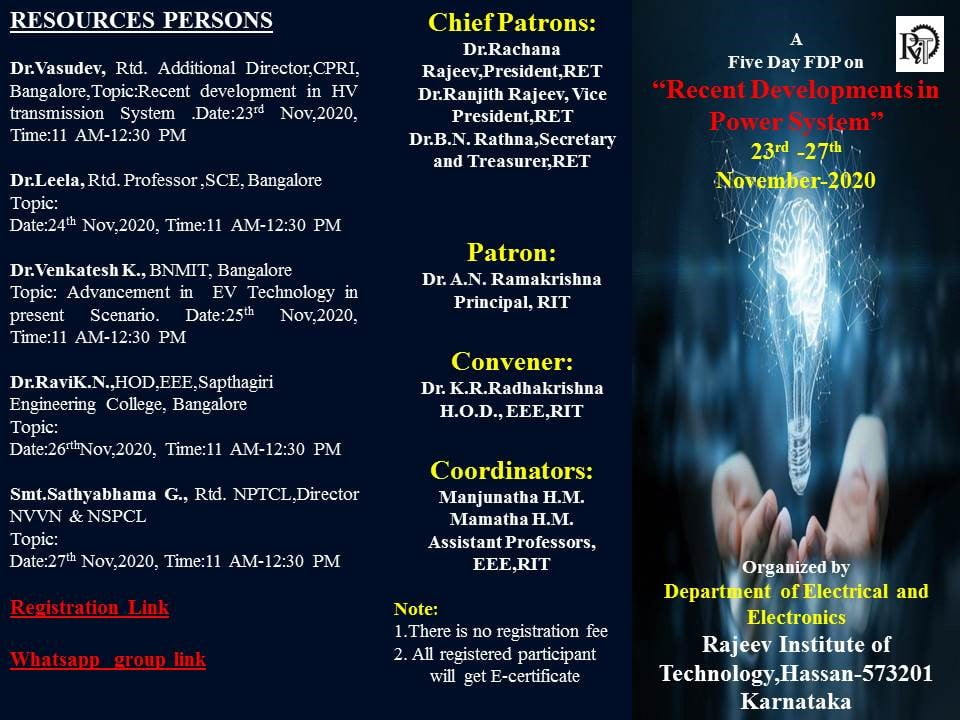
- A Technical talk on “Renewable energy resources and EV vehicles was conducted on 14/01/2022.
Awareness Program on “Health day” was conducted on 04/06/2022.
COE for the Academic Year 2023-24 (Odd Semester)
COE for the Academic Year 2023-24 (Even Semester)
COE for the Academic Year 2022-23 (Odd Semester)
Process of Mentoring
A maximum of 20-25 students are allotted to each Mentor. The Mentor shall record and maintain the details of each student in the proctor book.
Frequency of Interaction
Mentoring frequency: The Mentor will schedule about three or four interactive sessions with students.
Session One – Immediately after previous semester result declaration. (Within 4th week for I semester)
- Introductions in case of new student. First one-on-one with student; build rapport and learn about the student. Set expectations.
- Exchange all contact details and understand each other’s timing schedule.
- Discuss the previous semester results and the reasons for any failure if any.
- Confirm the next meeting date and time.
Session Two – Immediately after First IA result.
- This meeting will be an opportunity to really sit down and focus on the student.
- Have an open conversation about the student’s studies, aspirations, and life in general.
- Try to understand any difficulties being faced by the students with respect to Academic subjects.
- Discuss the attendance status & the result of I IA marks scored.
- Focus on the 4 key objectives. Try to uncover areas for improvement in these areas.
- Confirm the next meeting date and time.
Session Three – Immediately after Second IA result.
- Talk about any specific activity or discussion that occurred.
- Try to understand any difficulties being faced by the students with respect to Academic subjects.
- Discuss the attendance status & the result of II IA marks scored. Reasons for underperformance if any.
- Focus on the 4 key objectives. Try to uncover areas for improvement in these areas.
- Students will be advised to attend the III IA compulsorily and to prepare action plan for the Semester End Exam preparation.
- Confirm the next meeting date and time, if necessary.
Session Four – Before Semester end examination (if necessary)
- Continue to focus on learning about the student.
- Try to really understand the student’s goals, weaknesses, strengths, needs, and opportunities.
- Try to understand any difficulties being faced by the students with respect to Academic subjects.
- Discuss the attendance status & the result of III IA marks scored. Reasons for underperformance if any.
- In this session, try to focus more on the four key objectives.
- Discuss about the preparation of forthcoming examination.
Note: The Internal Assessment performance and attendance status of each student will be communicated to the respective parents.
- ABOUT
- INFRASTRUCTURE
- STUDENT LEARNING CENTRIC
- FACULTY PROFILES
- ACHIEVEMENTS
- RESEARCH INITIATIVES
- INDUSTRY INTERFACE
- INDUSTRIAL VISIT
- PLACEMENTS
- CO-CURRICULAR & EXTRA CURRICULAR ACTIVITIES
- COE-EEE
- MENTORING MODULE
About the Department
The Department of Electrical & Electronics Engineering was started in the academic year 2008-2009. The Department offers an undergraduate program in the field of Electrical & Electronics Engineering for which the student intake is currently 60. The Department of Electrical & Electronics Engineering is approved by the All-India Council for Technical Education (AICTE), and is affiliated to Visvesvaraya Technological University (VTU), Belagavi, Karnataka. The department has well-qualified, passionate, dedicated faculty and has a well-connected alumni network. The department prepares professionals with the capacity to apply their knowledge, skills, attitudes, and the most recent technological developments to the solution of problems in our society.
The moto of Electrical and Electronics department is to be a catalyst in imparting quality education and conducting valued research for the benefit of society. Historically, the field of electrical engineering is one of the most important engineering disciplines that have changed the course of the world.
The department strives to prepare its students to be independent and innovative. The environment of the department is conducive to academic growth of its faculty and students. The objective of department is to equip students with techniques to become providers of innovative and indigenous solutions. The department offers a vibrant environment for education and research in electrical engineering. The students are selected for jobs in the industry through campus as well as off campus placements. They are also encouraged to pursue higher studies in India as well as abroad. The students and faculty of the department receive support and encouragement from its alumni and guidance from experts from premier institutions and industry.
H.O.D.’s Message

Dr. PRADEEP K G M
Head of the Department
“Welcome to the Electrical and Electronics Engineering (EEE) department. It gives me immense pride and pleasure to lead the Electrical and Electronics Engineering Department of this esteemed & prestigious institution.
Electrical Engineering is the mother of all electrical sciences. The field of Electrical and Electronics Engineering plays a key role in the national economic growth in terms of power sector, transport, industrialization and automation.
Our Department consists of various laboratories equipped with the new technological set ups giving the scope to all students having a hands on experience individually, which will increase their confidence to face the practical problems in the field of Electrical Engineering. The prime attention is on Outcome Based Education (OBE) and Experiential Learning.
Our department with dedicated staffs aims to prepare the students for new challenges in the area of Electrical and Electronics Engineering. We are committed to give our students an environment where they would be able to develop critical thinking and problem-solving skills as they advance through the program. We are creating a platform for students to achieve their dream jobs in Government sectors/Private sectors.”
Ms. Bhoomika M S (2018-2022) of our department has secured 9th rank in VTU.
Vision of the department
- To pursue excellence in Electrical and Electronics Engineering, creating a research environment to promote innovation, instill professional ethics in students and to accomplish technological services for social and cultural aspiration of the society.
Mission of the department
- To make our students capable of building their carrier by providing strong foundation in Electrical and Electronics Engineering and also meet the growing challenges in Industry.
- To provide prerequisite skills for the needs of higher education and research developments.
- To handle socio-economic challenges of society by instilling human values and ethical responsibilities.
Program educational objectives
The program educational objectives are the statements that describe the expected achievements of graduates within first few years of their graduation from the program.
The program educational objectives of Bachelor of Electrical and Electronics Engineering at Rajeev Institute of Technology can be broadly defined as,
- PEO1: To provide good foundation in engineering science, Electrical and Electronics Engineering to excel in professional career.
- PEO2: To produce quality engineers who have capability to work in teams and contribute to real time projects.
- PEO3: To train students such that they would become entrepreneurs in the field of Electrical and Electronics Engineering.
Program outcomes
| PO1 | Engineering knowledge: Apply the knowledge of mathematics, science, engineering fundamentals, and an engineering specialization to the solution of complex engineering problems. |
| PO2 | Problem analysis: Identify, formulate, review research literature, and analyze complex engineering problems reaching substantiated conclusions using first principles of mathematics, natural sciences, and engineering sciences. |
| PO3 | Design/development of solutions: Design solutions for complex engineering problems and design system components or processes that meet the specified needs with appropriate consideration for the public health and safety, and the cultural, societal, and environmental considerations. |
| PO4 | Conduct investigations of complex problems: Use research-based knowledge and research methods including design of experiments, analysis and interpretation of data, and synthesis of the information to provide valid conclusions. |
| PO5 | Modern tool usage: Create, select, and apply appropriate techniques, resources, and modern engineering and IT tools including prediction and modeling to complex engineering activities with an understanding of the limitations. |
| PO6 | The engineer and society: Apply reasoning informed by the contextual knowledge to assess societal, health, safety, legal and cultural issues and the consequent responsibilities relevant to the professional engineering practice. |
| PO7 | Environment and sustainability: Understand the impact of the professional engineering solutions in societal and environmental contexts, and demonstrate the knowledge of and need for sustainable development. |
| PO8 | Ethics: Apply ethical principles and commit to professional ethics and responsibilities and norms of the engineering practice. |
| PO9 | Individual and team work: Function effectively as an individual, and as a member or leader in diverse teams, and in multidisciplinary settings. |
| PO10 | Communication: Communicate effectively on complex engineering activities with the engineering community and with society at large, such as, being able to comprehend and write effective reports and design documentation, make effective presentations, and give and receive clear instructions. |
| PO11 | Project management and finance: Demonstrate knowledge and understanding of the engineering and management principles and apply these to one’s own work, as a member and leader in a team, to manage projects and in multi disciplinary environments. |
| PO12 | Life-long learning: Recognize the need for, and have the preparation and ability to engage in independent and life-long learning in the broadest context of technological change. |
Program specific outcomes (PSO)
Students graduating from the Department of Electrical and Electronics Engineering will be
- PSO1: Able to Identify, formulate, analyse, design and implement electrical and electronic system.
- PSO2: Able to solve real time problems of Power system and Power Electronics using simulation software tools and also flaunts continuous self-learning.
Short term goals
- Leveraging technology for Teaching & Learning Process: Video based Learning and NPTEL.
- Endeavour to obtain sponsors for Workshops and FDPs.
- Encourage the Faculty members to publish papers in reputed International Journals and Conferences.
- The Department will organize International Conferences/Symposia in collaboration with Professional Societies and Foreign Universities.
- Motivational Initiatives will be enhanced to facilitate the students to participate in design contest, project display etc. and receive awards and recognitions by National/International agencies and Technical Societies.
Long term goals
- To achieve recognition of excellence in undergraduate education in the fields of Electrical & Electronics Engineering.
- To achieve distinguished academic results.
- To participate in the project sponsored by NGO’s, State & Central government bodies.
- Work in close cooperation with industry and professional bodies.
- Produce academically and professionally competent Electrical and Electronics Engineers.
- Develop the ability to work independently and cooperatively.
- Build skills and dispositions required to take up social responsibilities.
- The Department will take sincere efforts to involve in funded Research Projects in the emerging areas such as Smart grid, Renewable energy systems and also in Control and Instrumentation.
- Industry attached research laboratories will be established to promote research oriented projects.
- Interaction with Alumni and eminent personalities from IITs, IISC, NITs etc. will be strengthened for enriching the skills of faculty and students.
- More Entrepreneurship initiatives will be taken.
Program
| Programs | Heading to… | Duration | Intake |
| Electrical & Electronics Engineering | B.E (EEE) | 4 Years | 60 |
Class in-charge details
Semester | In-Charge Name | E mail Id. | Contact Number |
4th Year | Mr. Velu A | velua@rit.hassan.ac.in | 9591330675 |
3rd Year | Mr. Mathesh G | matheshg@rit.hassan.ac.in | 7402138472 |
| 2nd Year | Mr. Jayaram M V | jayaram.mvm@rithassan.ac.in | 9739977733 |
Infrastructure & Facilities
Department has sufficient class rooms and most of them are equipped with projectors. All ten laboratories under VTU curriculum are well equipped.
Department Library
The library is having a collection of Titles with Technical & aptitude books. The student project reports are also available for quick reference for students.
Laboratories
The Electrical Engineering deals with the study and application of electricity, electronics and electromagnetism, which includes all large-scale electrical systems mostly, power transmission and motor control. Electrical Engineering has gone from simple electric circuits of Edison and Tesla through Rocket science of Bode and Nyquist to the complexity of IC, Satellites and Communication network. The demand of electrical energy in our country is increasing at a very fast rate and this necessitates the need to generate more power. Thus, the role of electrical engineers becomes all the more important in today’s scenario.
We are equipped to provide prospective engineers with the necessary training and knowledge to enable them to make a meaningful contribution in this area. Initially, the programme provides students with a broad base on which their specialist knowledge can be built. The latter years have been designed to produce professional engineers with a good working knowledge of analogue, digital and power electronics, electrical machines and power system with the emphasis on applications. The Department has an excellent infrastructure to promote a congenial academic environment to impart quality education with well-equipped laboratories and a team of qualified and dedicated faculty members.
Electrical Machines Laboratory-1

This laboratory is utilized by the students to conduct experiments related to Transformers and Synchronous machines and gain practical experience on them. This laboratory supports teaching, research and consultancy work on Transformers & Synchronous machines. The laboratory can also be used for project work related to electrical machines and energy conversion.
Digital system Design Laboratory

The lab facilitates design and study of the performance of various analog electronic circuits & Digital circuits. Lab mainly concentrates on designing and analyzing of rectifiers, amplifiers, oscillators. It also concentrates on designing of counters and registers, demonstrating the truth table of various expressions and combinational circuits using logic gates. Lab is equipped with the basic electronic instruments such as Digital meters, Power supplies, function generators, IC tester kit, IC trainer kit, Digital Oscilloscopes etc.
Electrical Machines Laboratory-2

The main objective of this lab is to give the knowledge of D.C. machines & Induction Machines to the students which help to increase the technical skills of students. In this laboratory, we conduct various tests on D.C. machines to find the losses, efficiency and study their characteristics and various tests on induction machines to study the performance and its characteristics.
Analog Electronics Circuits Laboratory


In this laboratory the students will be able to Study pin details, specifications, application features of IC741 (LM741) and IC555 (Timer). It mainly concentrates on designing and analyzing of precision rectifiers, amplifiers, oscillators, Signal Generators, Schmitt Trigger circuits and first order Butterworth Filters. It also concentrates on frequency response characteristics of Operational Amplifiers IC741 under Inverting and Non Inverting configurations. Laboratory is equipped with Digital meters, Power supplies, function generators, IC tester kit, Digital Oscilloscopes, IC trainer kit etc.
Microcontroller Laboratory

This laboratory enables students to understand basic concepts and applications of Microcontrollers. It is designed to understand the internal organization of Intel 8051 Microcontrollers, and for all the control oriented applications extensively used.
Power Electronics Laboratory


Power Electronics Lab enables the students to have hands on practice in power semiconductor devices, such as diode, thyristor, T.R.A.I.C., G.T.O., power M.O.S.F.E.T., I.G.B.T. and I.G.C.T., D.C. and A.C. regulated power supplies, Power Electronic control modules for speed control of separately excited dc motor, universal motor etc.
Control System Laboratory


A control system plays a vital role in studying the stability studies of all electrical systems, which is highlighted in this laboratory. The analysis of Lag Lead compensator network, frequency response, effect of PID controllers, Speed torque Characteristics of AC & DC Servo motors, Scilab programming for second order, third order & DC Position control system are taught to students.
Digital Signal Processing Laboratory

In this laboratory the digital signals are simulated using Scilab software. The student will be simulating linear and circular convolution and also study the design and simulation of IIR and FIR filters using various methods.
Power System Simulation Laboratory

Laboratory is equipped with 24 computers with Scilab Simulation Package and LAN facility. Student can carry out load flow studies, short circuit analysis, Economic Dispatch and many power system related studies.
Relay and High Voltage Laboratory


The laboratory is equipped with state of the art high voltage equipments to study the breakdown characteristics of air insulation for both uniform and non-uniform configurations. In relay part, the laboratory has different types of electromechanical, microprocessor based relays and negative sequence relay. These characteristics are analyzed and protection scheme for generator and motor are studied.
FACILITIES
| Sl. No. | Facilities | Utilization |
| 1 | S.D.C.C. free version software tool and Microcontroller 8051. | Projects work carried using microcontroller of students utilizes this facility. |
| 2 | Scilab free version software tool | This software is used for simulation and verification of signal processing, control system and power systems. |
| 3 | P-Spice vision 9.1 free version software for implementation of power circuits. | This software is used for simulation and verification of analog and mixed-signal circuits. |
INSTRUCTIONAL MATERIALS
- RIT Library is a resource center for teaching, learning & research.
- Library has e-Learning Centre, Reference Section and Journals/Magazines.
- Library holds a hybrid collection of printed as well as electronic resources which include books, journals, databases, audio-visuals, CDs/DVDs, e-books, e-journals, reports, course materials, previous years’ question papers, Bound Volumes, Project Reports, case studies, conference proceedings, training manuals, etc.
- Major Equipment and Software Tools available in various Laboratories.
HARDWARE TOOL
- D.C. regulated power supply model, Signal Generator and Cathode ray oscilloscope 30MHz (Digital Type & Analog Type)
- Digital IC Trainer Kit and Digital IC Tester
- Flash pro evaluation kit, LCD & keyboard interfacing kit, Dual DAC interfacing kit, Elevator interfacing kit Temperature controller interfacing kit, seven segment display and HEX Keyboard interfacing kit, Stepper Motor and DC Motor Interfacing kit.
- Static Characteristics of SCR, MOSFET, TRIAC and IGBT Module. SCR triggering using UJT relaxation oscillator kit, SCR Digital firing circuit for 1 phase converter kit, Single phase full wave converter with R and RL load, Speed control of stepper motor module, IGBT based single phase inverter circuit, Speed control of Universal motor and Induction motor using AC voltage controller and Speed control of a Separately excited DC motor using an IGBT or MOSFET chopper.
- Maxwell’s Inductance Bridge, Kelvin’s Double Bridge, Energy Meter Calibration Test Jig, CT Test Jig, Active and Reactive Power Measurement Test Jig and De-Sauty’s Capacitance Bridge.
- Capacitor start and run Induction motor, 3 Phase Squirrel cage Induction motor,3 Phase Slip ring Induction motor, Single Phase transformer 2KVA/230V 1:1 transformer, 2KVA/230V 1:1 transformer with tapings at 0 to 50%, 86%, 100%. 1KVA/230V 1:1 transformer, Rheostat Load, 1 Phase and 3 Phase Autotransformer, Digital tachometer.
- DC rectifier unit 220V, 100A with line and load regulation and protection circuit, DC Shunt Motor , DC shunt generator, DC Compound Motor , DC compound generator, DC series motor, salient pole alternator, auto start synchronous motor and non- salient pole alternator
- Lead Network Kit, Lag – Lead Network Kit, PID Controller Kit, DC Servo Motor Kit, AC Servo Motor, Frequency Response and Time Response Characteristics of Second Order Systems and Synchro transmitter receiver pair Unit.
- 50kV AC/70kV DC set, Rod Gap Apparatus, 62.5mm Sphere gap with water resistor, Over Voltage Electro Mechanical Relay Kit, Negative Sequence Relay Kit, Generator Protection & Motor Protection Scheme fault Study Unit, 60KV Oil Testing Kit, Over Current Relay – Directional Features and IDMT Directional, Numerical Relay Over/Under Voltage kit, Numerical Over Current relay kit and IDMT non-directional characteristics Relay Test Kit.
- SERVER with Internet facility, Printers, Scanners and LCD Projectors
SOFTWARE TOOL
- Freeware Version – Scilab, PSpice, S.D.C.C.
- Well Stocked Departmental Library
- Online access to Journals
Facilities for Faculty
- Well Stocked Department Library.
- Internet Facility with Wi-Fi connectivity.
- Online access to Journals.
- Study / Sabbatical leave for higher studies / industrial training.
- Maternity leave for ladies faculty.
- Transport facility for staff.
- Financial support to faculties to publish journals/Conference papers.
TOP NOTCH ALUMNUS OF ELECTRICAL AND ELECTRONICS ENGINEERING DEPARTMENT
Student Learning Centric Odd Semester details(2023-2024)
| Sl. No. | Subject Name | Subject Code | Faculty Name | Course Modules | Lesson plan | Notes of lessons | PPT | Laboratory Manual | ||||
|---|---|---|---|---|---|---|---|---|---|---|---|---|
| 1 | Engineering Mathematics for EEE | BEE301 | Ms. Sahana S S | Link | Link | Link | ||||||
| 2 | Electric Circuit Analysis | BEE302 | Mr. Vasanth Reddy G | Link | Link | Link | Link | |||||
| 3 | Analog Electronic Circuits | BEE303 | Mr. Jayaram M V | Link | Link | Link | Link | |||||
| 4 | Transformers and Generators | BEE304 | Mr. Velu A | Link | Link | Link | ||||||
| 5 | Transformers and Generators Lab | BEEL305 | Mr. Velu A | Link | Link | Link | ||||||
| 6 | Electrical Measurements and Instrumentation | BEE306B | Dr. Radhakrishna K R | Link | Link | Link | ||||||
| 7 | SCI LAB or MATLAB for Transformers and Generators | BEEL358A | Mr. Vishwas S | Link | Link | Link | ||||||
| 8 | Electric Motors | BEE401 | Mr. Nagendra Prasad H K | |||||||||
| 9 | Transmission and Distribution | BEE402 | Mr. Nagendra Prasad H K | |||||||||
| 10 | Microcontrollers | BEE403 | Mr. Velu A | |||||||||
| 11 | Electric Motors laboratory | BEEL404 | Mr. Velu A | |||||||||
| 12 | Electrical Power Generation and Economics | BEE405A | Mrs. Rashmi N | |||||||||
| 13 | SCI LAB or MATLAB for EEM | BEEL456B | Mrs. Rashmi N | |||||||||
| 14 | Biology For Engineers | BBOK407 | Mr. Jayaram M V | |||||||||
| 15 | Universal human values course | BUHK408 | Mr. Vasanth Reddy G | |||||||||
| 16 | Transmission and Distribution | 21EE51 | Mr. Vishwas S | Link | Link | Link | ||||||
| 17 | Control Systems | 21EE52 | Mrs. Rashmi N | Link | Link | Link | Link | |||||
| 18 | Power System Analysis – 1 | 21EE53 | Mr. Nagendra Prasad H K | |||||||||
| 19 | Power Electronics | 21EE54 | Mr. Jayaram M V | Link | Link | Link | Link | |||||
| 20 | Power Electronics Laboratory | 21EEL55 | Mr. Vishwas S | Link | Link | Link | ||||||
| 21 | Research Methodology & Intellectual Property Rights | 21RMI56 | Mr. Vasanth Reddy G | Link | Link | Link | ||||||
| 22 | Environmental Studies | 21CIV57 | Mr. Manjunath | |||||||||
| 23 | Management and Entrepreneurship | 21EE61 | Dr. Pradeep K G M | |||||||||
| 24 | Power System Analysis – 2 | 21EE62 | Mr. Velu A | |||||||||
| 25 | Signals and Digital Signal Processing | 21EE63 | Mr. Jayaram M V | |||||||||
| 26 | Sensors and Transducers | 21EE641 | Mr. Vasanth Reddy G | |||||||||
| 27 | Conservation of Natural Resources | 21CV654 | Mrs. Supriya C L | |||||||||
| 28 | Digital Signal Processing Laboratory | 21EEL66 | Mr. Vasanth Reddy G | |||||||||
| 29 | Power System Analysis II | 18EE71 | Mr. Nagendra Prasad H K | |||||||||
| 30 | Power System Protection | 18EE72 | Mr. Velu A | Link | Link | Link | ||||||
| 31 | Solar & Wind Energy | 18EE731 | Mrs. Rashmi N | Link | Link | Link | Link | |||||
| 32 | Utilization of Electrical Power | 18EE742 | Dr. Radhakrishna K R | Link | Link | Link | ||||||
| 33 | Artificial Intelligence | 18EE75 | Dr. Shrishailmath | |||||||||
| 34 | PSS Laboratory | 18EEL76 | Mr. Nagendra Prasad H K | |||||||||
| 35 | Relay and HV Lab | 18EEL77 | Dr. Radhakrishna K R | Link | Link | Link | ||||||
| 36 | Power System Operations & Control | 18EE81 | Mr. Nagendra Prasad H K | |||||||||
| 37 | Electrical Estimation & Costing | 18EE822 | Rashmi N | Link | Link | Link | Link |
Student Learning Centric details(2022-2023)
| Sl. No. | Subject Name | Subject Code | Faculty Name | Course Modules | Lesson plan | Notes of lessons | PPT | Laboratory Manual | Lab Videos |
|---|---|---|---|---|---|---|---|---|---|
| 1 | Transform Calculus, Fourior Series | 21MAT31 | Smitha M B | ||||||
| 2 | Analog Electrical Circuits & Op-amps | 21EE32 | Rashmi N | Link | Link | Link | |||
| 3 | Electric Circuit Analysis | 21EE33 | Vanditha, Jayaram M V | Link | Link | Link | |||
| 4 | Transformers & Generators | 21EE34 | Kiran B V | ||||||
| 5 | Electrical Machines Laboratory I | 21EEL35 | Kiran B V, Sandhya P | ||||||
| 6 | Complex Analysis, Probability & Linear Programming | 21MAT41 | Brunda N | ||||||
| 7 | Digital Sytem Design | 21EE42 | Chandra Babu Naidu | Link | Link | ||||
| 8 | Microcontroller | 21EE43 | Supriya Ananth K A | Link | Link | Link | Link | ||
| 9 | Electric Motors | 21EE44 | Shriharsha J | Link | Link | Link | Link | ||
| 10 | Biology for Engineers | 21BE45 | Sandhya P | ||||||
| 11 | Electrical Machines Laboratory II | 21EEL46 | Radhakrishna K R, Rashmi | Link | |||||
| 12 | Management and Entrepreneurship | 18EE51 | Jayaram M V | Link | Link | Link | Link | ||
| 13 | Microcontroller | 18EE52 | Kiran B V | ||||||
| 14 | Power Electronics | 18EE53 | Nagendra Prasad H K | Link | |||||
| 15 | Signals & Systems | 18EE54 | Jayaram M V | Link | Link | Link | |||
| 16 | Electrical Machine Design | 18EE55 | Vanditha G | Link | |||||
| 17 | High Voltage Engineering | 18EE56 | Harshitha Naval M N | Link | |||||
| 18 | Microcontroller Laboratory | 18EEL57 | Jayaram M V | Link | Link | Link | |||
| 19 | Power Electronics Laboratory | 18EEL58 | Nagendra Prasad H K | ||||||
| 20 | Control Systems | 18EE61 | Rashmi N | Link | Link | Link | |||
| 21 | Power System Analysis I | 18EE62 | Nagendra Prasad H K | Link | |||||
| 22 | Digital Signal Processing | 18EE63 | Jayaram M V | Link | Link | Link | |||
| 23 | Sensors & Transducers | 18EE641 | Kiran B V | ||||||
| 24 | Ocupational Health & Safety | 18CV653 | Soundarya D | Link | Link | ||||
| 25 | Control System Laboratory | 18EEL66 | Rashmi N | Link | Link | Link | |||
| 26 | Digital Signal Processing Laboratory | 18EEL67 | Jayaram M V | Link | Link | Link | |||
| 26 | Power System Analysis II | 18EE71 | Nagendra Prasad H K | ||||||
| 27 | Power System Protection | 18EE72 | Sandhya P | ||||||
| 28 | Solar & Wind Energy | 18EE731 | Harshitha Naval M N | Link | |||||
| 29 | Utilization of Electrical Power | 18EE742 | Radhakrishna K R | Link | Link | Link | Link | ||
| 30 | Energy & Environment | 18ME751 | Rashmi N | Link | Link | Link | Link | ||
| 31 | PSS Laboratory | 18EEL76 | Nagendra Prasad H K | ||||||
| 32 | Relay and HV Lab | 18EEL77 | Sandhya P | ||||||
| 33 | Power System Operations & Control | 18EE81 | Nagendra Prasad H K | ||||||
| 34 | Electrical Estimation & Costing | 18EE822 | Rashmi N | Link | Link | Link | Link |
Staff Achievements
FACULTY ACHIEVEMENTS
FACULTY PUBLICATIONS
Journals/ Conferences | International | National | Total |
| Journals | 48 | – | 48 |
| Conferences | 13 | 18 | 31 |
TEXT BOOKS PUBLISHED
| Text Book | Author/s |
| “Micro Electro Mechanical Systems” [ISBN –978-93-5620-197-2] as co- author in Sciro International Publishers (https://sciropub.com/published-books.html) 2022. | Dr.M.M.Prasada Reddy, Dr.Pradeep K G M, Dr.Umesha G B, Dr.D.Rammurthy |
| Book Chapter: Design and simulation of Voltage Source Converter based HVDC Transmission | Dr. Shri Harsha J, Dr. Thejaswini R |
JOURNAL REVIEWERS
| Name | Journal | Type |
| Dr. Pradeep K G M | · The Hertz Journal of Engineering (HERTZ). · International Journal of Creative Research and Thoughts (IJCRT). · Journal of Emerging Technologies and Innovative Research (JETIR). | Peer Reviewed Journals |
| Dr. Radhakrishna K R | 2021-The First Edition of the Flagship International Conference Series of IEEE Mysore Sub Section in association with IEEE Bangalore Section at NAVKIS College of Engineering, Hassan on 24th & 25th October 2021. | IEEE |
| Dr. Shri Harsha J | · INSC International Journal under the stream Electrical and Electronics Engineering · IEEE 3rd International Conference on TEMSMET-2023 organized by Vidya Vikas Institute of Engineering and Technology, Mysuru · International Conference on Internet of Things, Communication, Intelligence and Computing organized by Shridevi Institute of Engineering and Technology, Tumakuru · International Conference on Power, Control and Sustainable Energy Systems (ICPCSES-2022) organized by Department of EEE, B.M.S. College of Engineering, Bengaluru | Peer Reviewed Journals |
CONFERENCE REVIEWERS
Name | Name | Conference | Type |
| Mr. Nagendra Prasad H K | International conference on “Technology, Engineering, Management for Societal impact using Marketing, Entrepreneurship & Talent (TEMSMET 2023)” | IEEE | IEEE |
STAFF ACHIEVEMENTS
Dr. Pradeep K G M, Received “Best Young Faculty “award from Research Education Solutions (Registered as Micro Enterprise under MSME, Government of India) 2022.
Dr. Radhakrishna K R received Gold medal for successful completion of Ph.D., in N.I.E. Mysuru
Dr. Shri Harsha J was on Session Chair” in IEEE 3rd International Conference on TEMSMET-2023 organized by Vidya Vikas Institute of Engineering and Technology, Mysuru.
Dr. Shri Harsha J had received Young Researcher Award-2022.
Dr. Shri Harsha J was the Energy Club Coordinator funded by AICTE, New Delhi through SPICES for FY 2021-2022.
Dr. Shri Harsha J was the Research Coordinator for “Energy Conservation and sustainable Infrastructure Lab” funded by VGST, KSTePS, Bangalore,
Mr. Nagendra Prasad H K had Chaired a session in National Conference on Emerging Technologies in Engineering (NCETE-2023) at NAVKIS college of Engineering, Hassan on 12th May 2023.
Student Achievements
STUDENT ACHIEVEMENTS
Ms. Bhoomika M S (4RA18EE004) have Secured 9th V.T.U. Rank for the 2018-2022 Batch.

- Rohan M N, Mr. Darshan Y and Mr. Jeevan lobo had participated in HACKINTOSH-EVO at RIT, Hassan from 4th October 2019 to 5th October 2019.
- Rohan M N, Mr. Darshan Y and Mr. Jeevan lobo, had secured Third Place in State Level Technical Fest “avagamah” at ATME, Mysuru on 14th November 2019.
- Bhoomika M S, had participated in State Level Technical Fest “avagamah” at ATME, Mysuru on 14th November 2019.
- Bhoomika M S and Ms. Keerthana A R, had secured First Place in National Level Technical Fest at AIT, Chikkamagaluru.
- Jeevan lobo and Mr. Darshan Y, had participated in Block-Athon 2019 at Srichid, Mandya.
- Jeevan lobo and Mr. Darshan Y, had participated in Markerspace program at Infosys, Mysuru.
- Bhoomika M S, had participated in Workshop on Data Science at VIT, Bengaluru from 25th January 2020 to 31st January 2020.
- Bhoomika M S, had participated in Online Event “Electroquest” at MCE, Hassan on 29th April 2020.
- Bhoomika M S, had participated in Inter College Technical Fest – Exousia 2021 at GSSS, Mysuru on 24th July 2021.
- Pramod H J, Mr. Manjunath Y S, Mr. N S Swaroop, Mr. Vishwanatha, Mr. Pradeep T R and Mr. Shylesh Kumar B K had presented a technical paper at National level Students’ Technical Paper, SYMPOSIUM-6 at HMSIT, Tumakuru on 22nd march 2014.
Student Achievements in Sports
STUDENT ACHIEVEMENTS IN SPORTS
- Mr.PUNEETH H J participated in Men Badminton Tournament organized under VTU events. He participated in the team which took part in The VTU Central Karnataka Zone Men Badminton Tournament 2017-18 organized by KIT, TIPTUR from 4th to 5th April 2017.
- Mr.ABHISHEK H R participated in Men Kabaddi Tournament organized under VTU events. He participated in the team which took part in The VTU Central Karnataka Zone Men Kabaddi Tournament 2017-18 organized by MCE, HASSAN from 12th to 13th April 2017.
- Mr. HEMANTH G R, Mr. Lokesh B G and MOHAN A A participated in Men Kho Kho Tournament organized under VTU events. They participated in the team which took part in The VTU Inter Collegiate Central Karnataka Zone Men Kho Kho Tournament 2018-19 organized by KIT, TIPTUR from 1st to 2nd March 2018.
- Mr.PUNEETH H J and Mr. JEEVAN LOBO participated in Men Badminton Tournament organized under VTU events. They participated in the team which took part in The VTU Central Karnataka Zone Men Badminton Tournament 2018-19 organized by MCE, HASSAN from 27th to 28th August 2018.
- Ms.LAKSHMI A M participated in Women Throwball Tournament organized under VTU events. She participated in the team which took part in The VTU Central Karnataka Zone Women Throwball Tournament 2018-19 organized by BIET, DAVANAGERE from 9th to 10th October 2018.
- Ms.LAKSHMI A M participated in Women Throwball Tournament organized under VTU events. She participated in the team which took part in The VTU Inter Zone Women Throwball Tournament 2018-19 organized by MCE, HASSAN from 12th to 13th October 2018.
- Mr.JANARDHAN B R and Mr.YOGEESH V K WON in Men Volleyball Tournament organized under VTU events. They participated in the team which took part in The VTU Central Karnataka Zone Men Volleyball Tournament 2019-20 organized by JNNCE, SHIVAMOGGA from 9th to 10th March 2019.
- Mr.JANARDHAN B R and Mr.YOGEESH V K participated in Inter Collegiate Men/Women VTU Athletic Meet organized under VTU events, organized by JNNCE, SHIVAMOGGA from 22nd to 25th March 2019.
- Ms.LAKSHMI A M participated in Women Throwball Tournament organized under VTU events. She participated in the team which took part in The VTU Central Karnataka Zone Women Throwball Tournament 2019-20 organized by PESIT, SHIVAMOGGA from 18th to 19th October 2019.
- Mr. RAJESH D participated in Men Kho Kho Tournament organized under VTU events. He participated in the team which took part in The VTU Inter Collegiate Central Karnataka Zone Men Kho Kho Tournament 2020-21 organized by SIT, TUMAKURU from 27th to 28th February 2020.
- Ms. GANAVI N GOWDA participated in Women Throwball Tournament organized under VTU events. She participated in the team which took part in The VTU Central Karnataka Zone Women Throwball Tournament 2022-2023 organized by SIT, TUMAKURU from 16th to 17th March 2023.
- Mr. Sharath P participated in Men Cricket Tournament organized under VTU events. He participated in the team which took part in The VTU Central Karnataka Zone men Cricket Tournament 2022-23 organized by PESITM, SHIVAMOGGA from 13th to 15th October 2023.
- Mr. RAJESHA D and Mr. JAFER S participated in Badminton Tournament organized under VTU events. They participated in the team which took part in The VTU Central Karnataka Zone Men Badminton Tournament 2012-23 organized by MCE, HASSAN from 4th to 5th November 2022.
- Mr. ABHISHEK U N participated in Men Volleyball Tournament organized under VTU events. He participated in the team which took part in The VTU Central Karnataka Zone Men Volleyball Tournament 2022-23 organized by AIT, CHIKKAMAGALURU from 18th to 19th March 2023.
Research Initiatives
List of Faculty completed Ph.D.
Sl. No. | Name of Faculty | Designation | Teaching Experience | Research Experience | Industrial Experience |
| 1 | Dr. Pradeep K G M | Associate Professor and H.O.D. | 09 | 04 Years | – |
| 2 | Dr. Radhakrishna K R | Professor | 23 | 08 Years | – |
| 3 | Dr. Shri Harsha J | Associate Professor | 13 | 08 years | 03 Months |
List of Ph.D. pursuing Candidates
Sl. No. | Name | Status | Research Centre | Internal or External |
| 1 | Nagendra Prasad H K | Registered | SSAHE, Tumakuru | External |
| 2 | Velu A | Registered | SRMIST, Chennai | External |
| 3 | Vasanth Reddy G | Registered | VTU | External |
List of Funded Projects
Name of the Project/ Endowments, Chairs | Name of the Principal Investigator/Co-investigator | Year of Award | Amount Sanctioned | Duration of the project | Name of the Funding Agency | Type (Government/ non-Government) |
| Karnataka State Energy Conservation Fund | H.O.D., EEE | 2022-23 | 50,000 | One year | KREDL | Government |
| Karnataka State Energy Conservation Fund | H.O.D., EEE | 2021-22 | 50,000 | One year | KREDL | Government |
| Karnataka State Energy Conservation Fund | H.O.D., EEE | 2020-21 | 50,000 | One year | KREDL | Government |
| Karnataka State Energy Conservation Fund | H.O.D., EEE | 2019-20 | 50,000 | One year | KREDL | Government |
| Renewable Energy based Wireless Charging of Electric Vehicles | Dr.Radhakrishna K R | 2021-22 | 5,000 | 6 months | Visvesvaraya Technological University (VTU) | Government |
| Monitoring Vehicular Pollution Causes Global Warming | Mrs.Sowmya G R | 2021-22 | 5,000 | 6 months | Visvesvaraya Technological University (VTU) | Government |
| “Low cost ventilator with blood oxygen sensing” | Mrs. Sowmya G R | 2020-21 | 5,000 | 6 months | Visvesvaraya Technological University (VTU) | Government |
| “IOT based smart irrigation system” | Mr. Nagendra Prasad H K | 2020-21 | 5,000 | 6 months | Visvesvaraya Technological University (VTU) | Government |
| Soldier Position Tracking and Health Monitoring System | Mrs. Sowmya G R | 2019-20 | 5,000 | 6 months | Visvesvaraya Technological University (VTU) | Government |
| Automatic Car Parking System Using IOT | Mr. Arun H | 2019-20 | 5,000 | 6 months | Visvesvaraya Technological University (VTU) | Government |
| Design and Fabrication of River Cleaning Machine | Mrs.Sowmya G R | 2018-19 | 5,000 | 6 months | Visvesvaraya Technological University (VTU) | Government |
| Intelligent Piezoelectric harvesting a Sustainable Approach to A Clean Energy Generation | Mr. Manjunth H M | 2018-19 | 5,000 | 6 months | Visvesvaraya Technological University (VTU) | Government |
PLACEMENTS AND HIGHER STUDIES




Co-curricular & Extra curricular Activities
Workshop on Switch Gears & its Applications by dbson, Universal Power Controls was conducted from 10/11/2018 to 13/11/2018.


The Technical talk on Recent trends in Solar energy system for ON and OFF grid applications was conducted on 10.0.2019 by Dr. Rajanna S., Professor, E.E.E. Department, M.C.E., Hassan.

Four days Workshop on Electrical Switchgear & its Applications by DEBESON, was conducted from 04/11/2019 to 07/11/2019.

Three days Workshop on C in association with Seventh Sense, was conducted from 08/11/2019 to 10/11/2019, organised by E BELAKU club.

A talk by Sri H.S.Venkatesh, Additional chief Electrical Inspectorate, Mysuru was organized on 28.12.2020 regarding National Energy Conservation Week in association with K.R.E.D.L.

A Talk by Dr.Gopalareddy K., Professor, EEE Department, V.V.C.E., Mysuru, was organized on 14.01.2022 regarding Challenges and Opportunities for Electric Vehicles in India and it’s importance in Energy conservation.

Five days Workshop on Recent Developments in Power Systems was conducted from 23/11/2020 to 27/11/2020.

- A Technical talk on “Renewable energy resources and EV vehicles was conducted on 14/01/2022.
Awareness Program on “Health day” was conducted on 04/06/2022.
COE for the Academic Year 2023-24 (Odd Semester)
COE for the Academic Year 2023-24 (Even Semester)
COE for the Academic Year 2022-23 (Odd Semester)
Process of Mentoring
A maximum of 20-25 students are allotted to each Mentor. The Mentor shall record and maintain the details of each student in the proctor book.
Frequency of Interaction
Mentoring frequency: The Mentor will schedule about three or four interactive sessions with students.
Session One – Immediately after previous semester result declaration. (Within 4th week for I semester)
- Introductions in case of new student. First one-on-one with student; build rapport and learn about the student. Set expectations.
- Exchange all contact details and understand each other’s timing schedule.
- Discuss the previous semester results and the reasons for any failure if any.
- Confirm the next meeting date and time.
Session Two – Immediately after First IA result.
- This meeting will be an opportunity to really sit down and focus on the student.
- Have an open conversation about the student’s studies, aspirations, and life in general.
- Try to understand any difficulties being faced by the students with respect to Academic subjects.
- Discuss the attendance status & the result of I IA marks scored.
- Focus on the 4 key objectives. Try to uncover areas for improvement in these areas.
- Confirm the next meeting date and time.
Session Three – Immediately after Second IA result.
- Talk about any specific activity or discussion that occurred.
- Try to understand any difficulties being faced by the students with respect to Academic subjects.
- Discuss the attendance status & the result of II IA marks scored. Reasons for underperformance if any.
- Focus on the 4 key objectives. Try to uncover areas for improvement in these areas.
- Students will be advised to attend the III IA compulsorily and to prepare action plan for the Semester End Exam preparation.
- Confirm the next meeting date and time, if necessary.
Session Four – Before Semester end examination (if necessary)
- Continue to focus on learning about the student.
- Try to really understand the student’s goals, weaknesses, strengths, needs, and opportunities.
- Try to understand any difficulties being faced by the students with respect to Academic subjects.
- Discuss the attendance status & the result of III IA marks scored. Reasons for underperformance if any.
- In this session, try to focus more on the four key objectives.
- Discuss about the preparation of forthcoming examination.
Note: The Internal Assessment performance and attendance status of each student will be communicated to the respective parents.




